The Circular Kitchen: A recipe for change
The Circular Kitchen is a collaborative project between our London studio and third-year Central Saint Martins Architecture students.
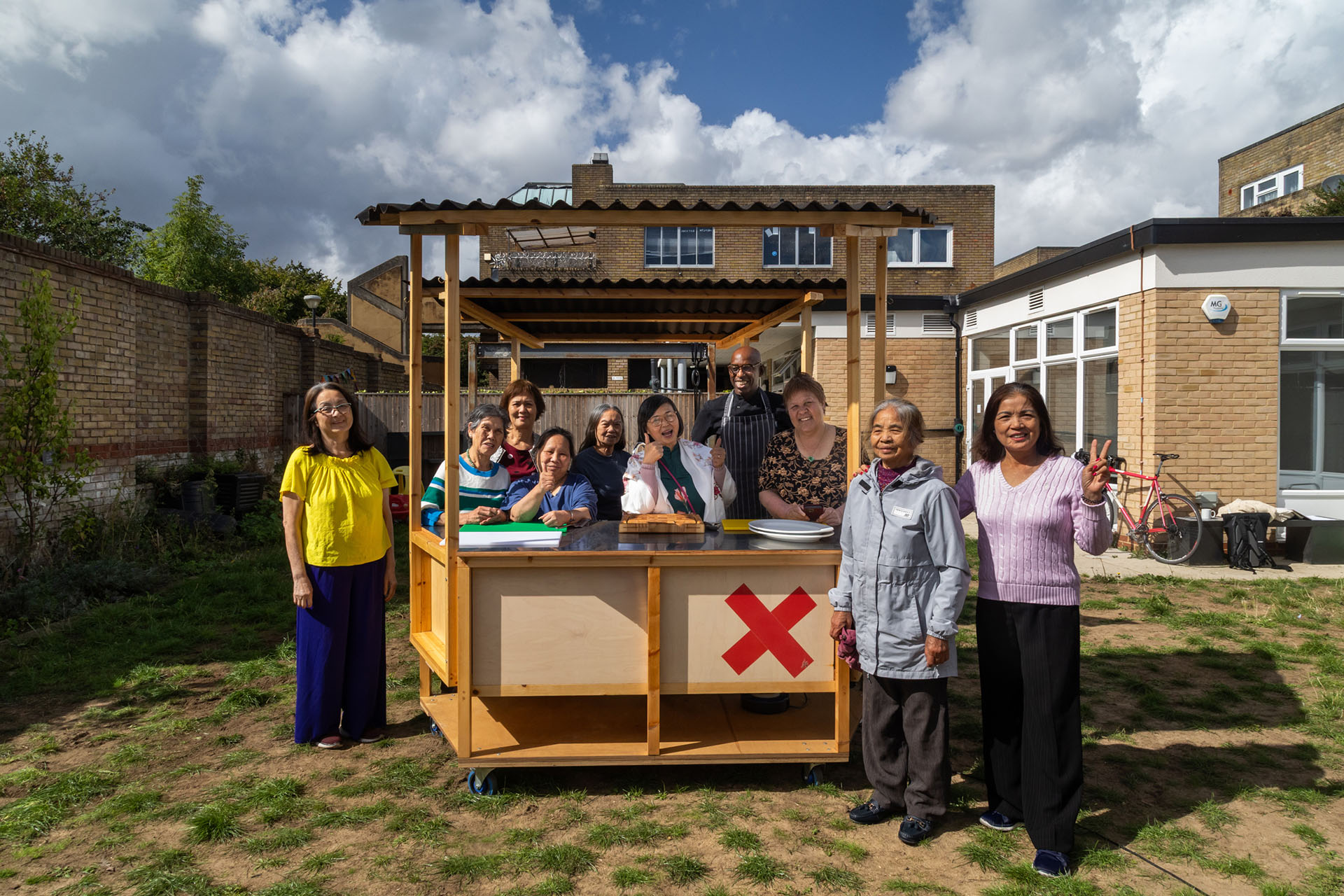
Starting as a hypothetical work experience project, momentum around the kitchen has grown until, two years on, it has become a real-world community asset for Woolwich Common Community Centre.
As London shifts towards retrofitting, The Circular Kitchen’s story is about changing attitudes surrounding waste materials. Funded by the National Lottery and backed by over £18,000 of our own pro-bono support, it proves that waste can be a valuable community resource.
Here’s how this revolutionary little kitchen came to life in ten bite-sized steps.
Step 1:
Work up an appetite for reuse
It’s 2024. London produces nearly two million tonnes of food waste annually. Our London studio sees this as a clear mandate for design to make a difference. In response, we partner with Central Saint Martins to deliver a student-led project.
The task: to design a flexible outdoor kitchen that embraces circular economy principles.
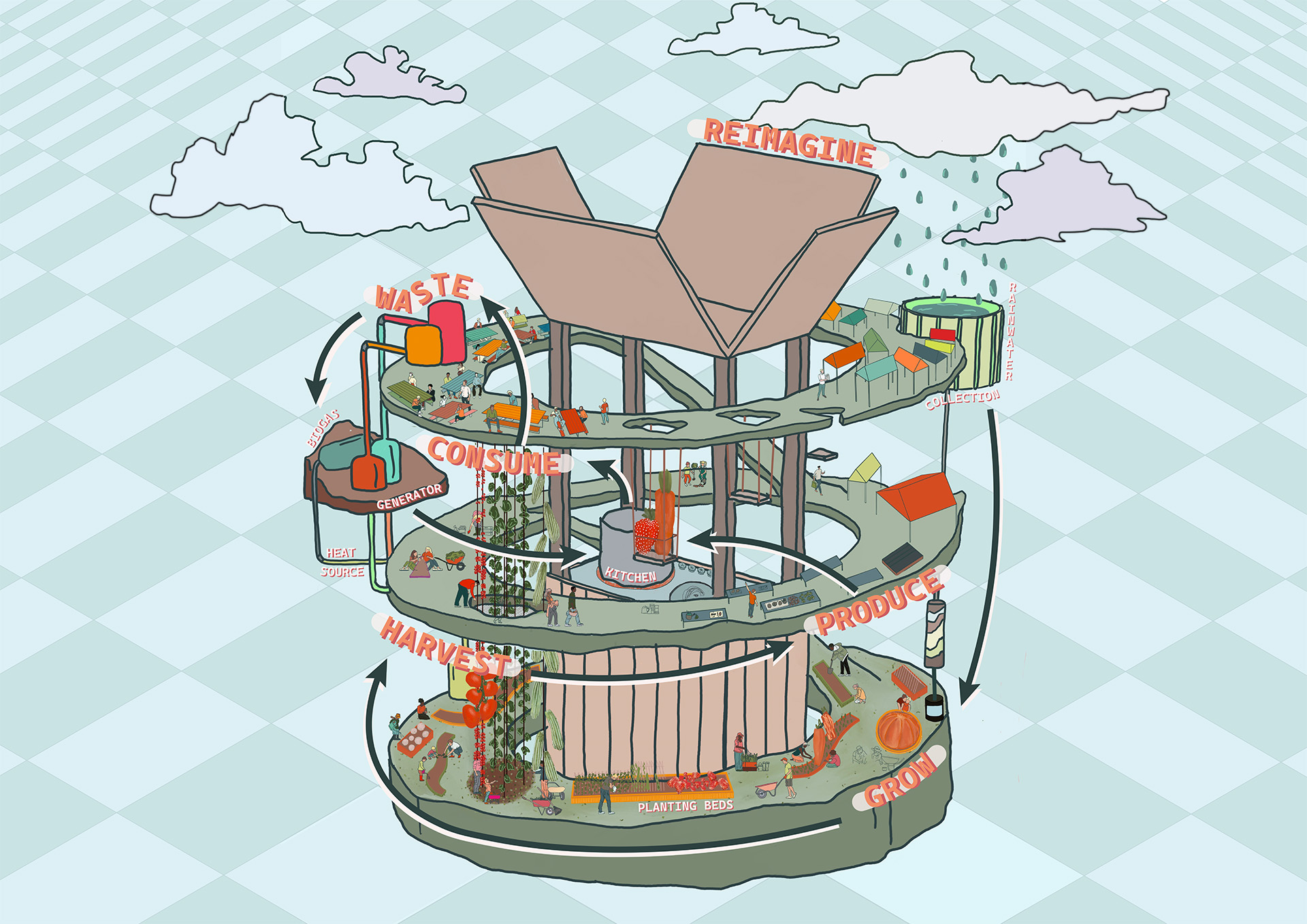




Step 2:
Meet with a mock client
The students partner with Brockwell Community Greenhouses— who act as a “mock client”. They visit the community garden, meet its users, and work with South London Reclamation to build a palette of accessible materials.
Step 3:
Create a recipe for revolution
The Circular Kitchen design is born. This modular, two-part, reconfigurable octagonal structure is designed to be mobile, easy to store, and ideal for year-round community use. It is built around a simple truth: food brings people together.

It’s incredibly valuable for students to understand how the thinking and skills that they’re developing can be applied to deliver real social impact— architecture is about much more than buildings.
Laura Cassullo, Director and London studio lead at Stride Treglown
Step 4:
Bring a real partnership to the table
Spring 2025. As the cool air warms, a new phase begins. The project finds a real-world home in Woolwich Common Community Centre (WCCC), who invite the team to adapt the kitchen for their garden.

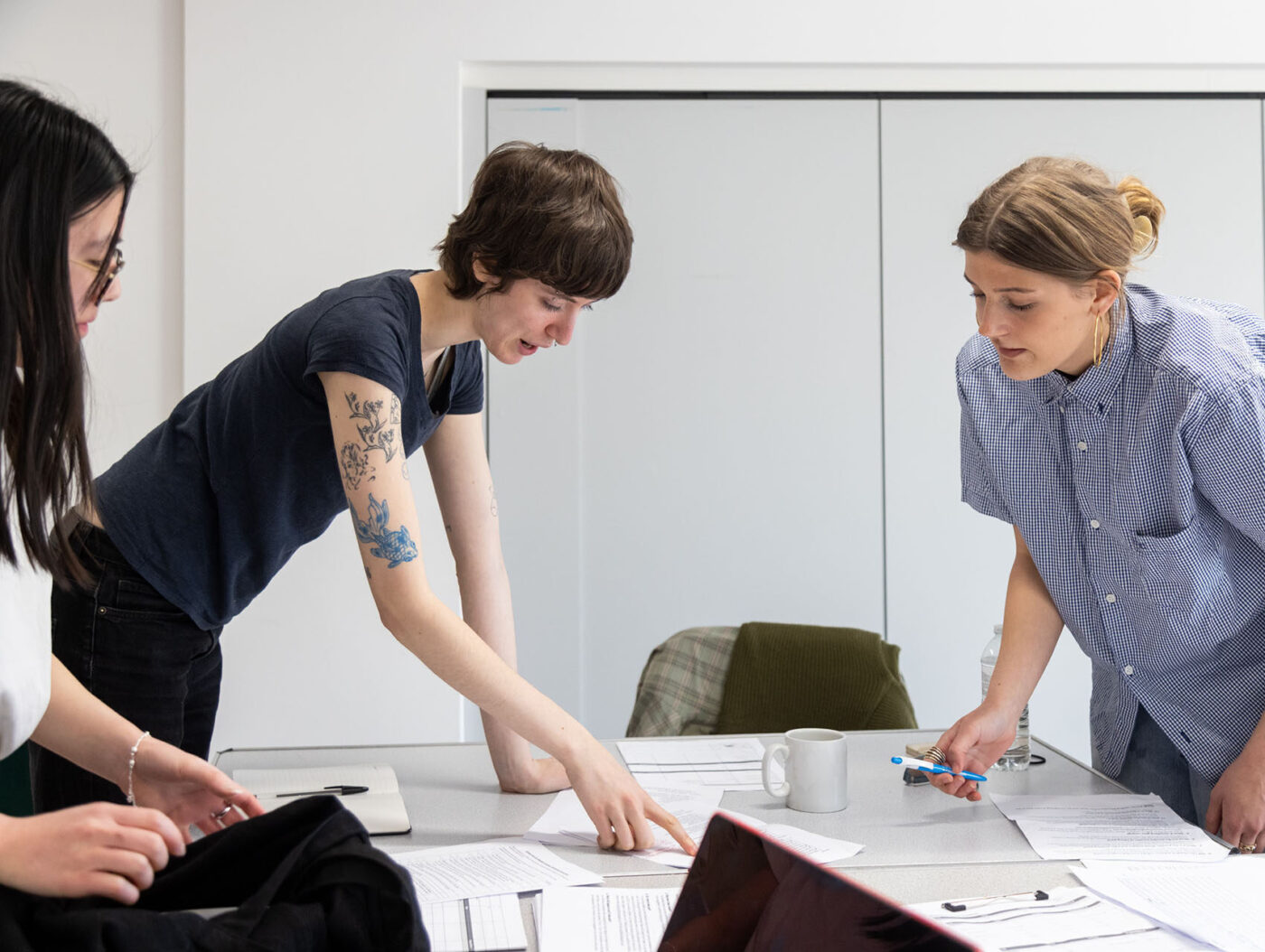
Step 5:
Refine the recipe for engagement
Award-winning film studio Postcard Productions mentors the students in visual storytelling, whilst our very own Social Impact Researcher, Milly Warner, teaches them how to bring the best out of their interviewees.
Step 6:
Capture the local flavour
Armed with new skills and a few cameras, they meet with cooking groups, women’s groups, gardeners, and local boxers, creating a series of powerful short films.
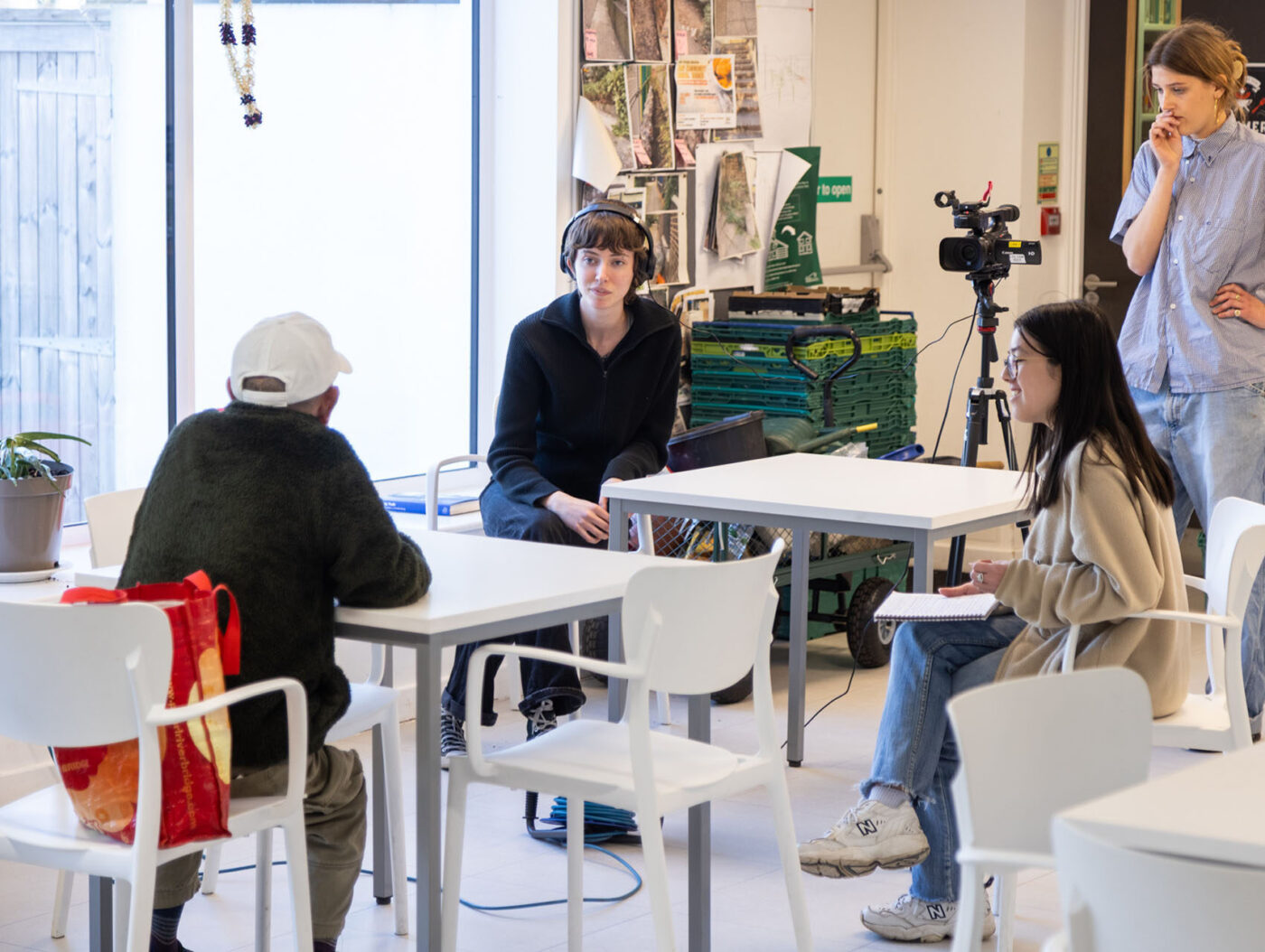
Step 7:
Serve up community stories
A fresh summer arrives, and with it, a pivotal month. The students’ films are showcased at the London Festival of Architecture in a panel event celebrating community voices. The takeaway: communal cooking fosters connection, and design can do more to support it.
Within days, WCCC receives National Lottery funding to build the kitchen.
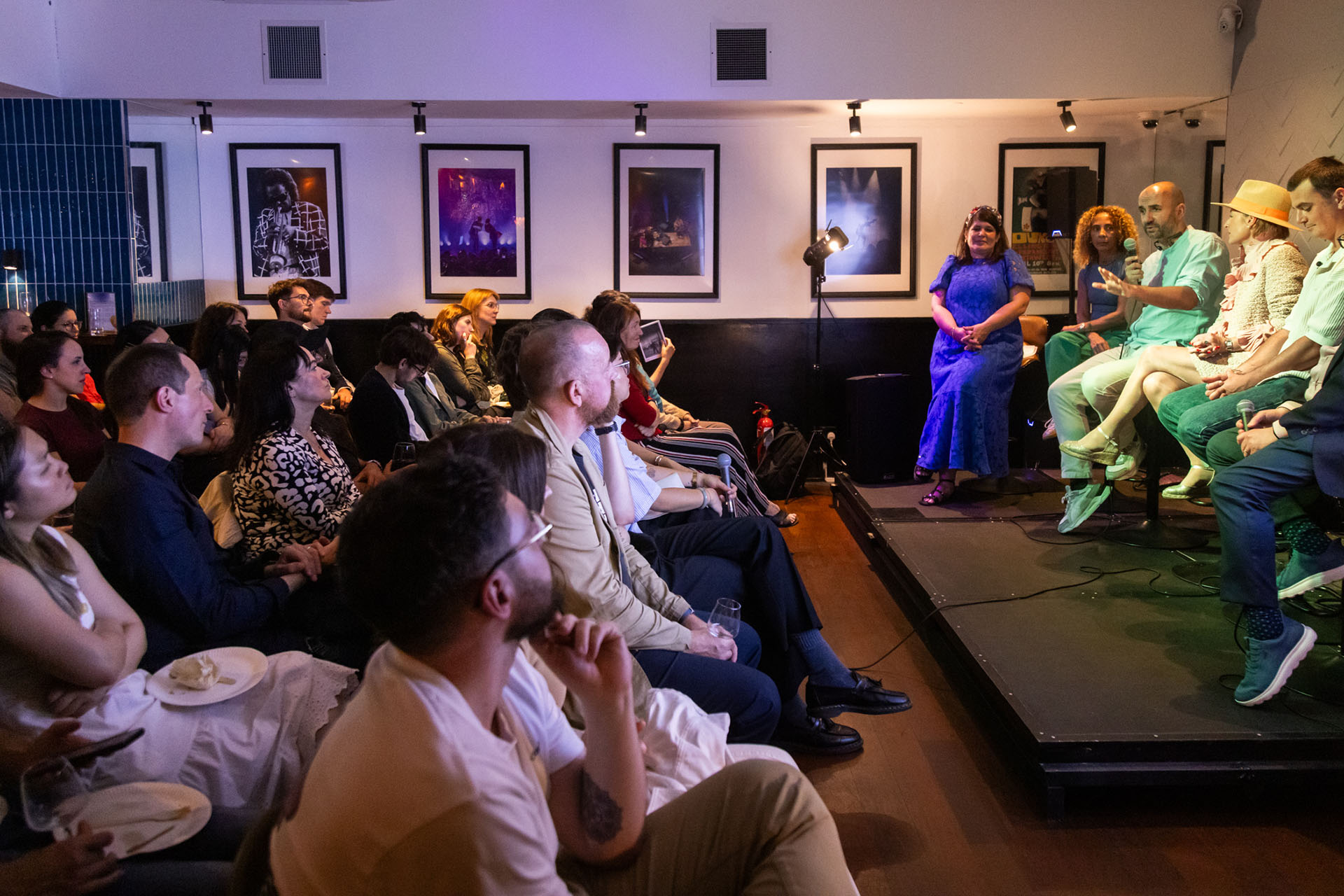
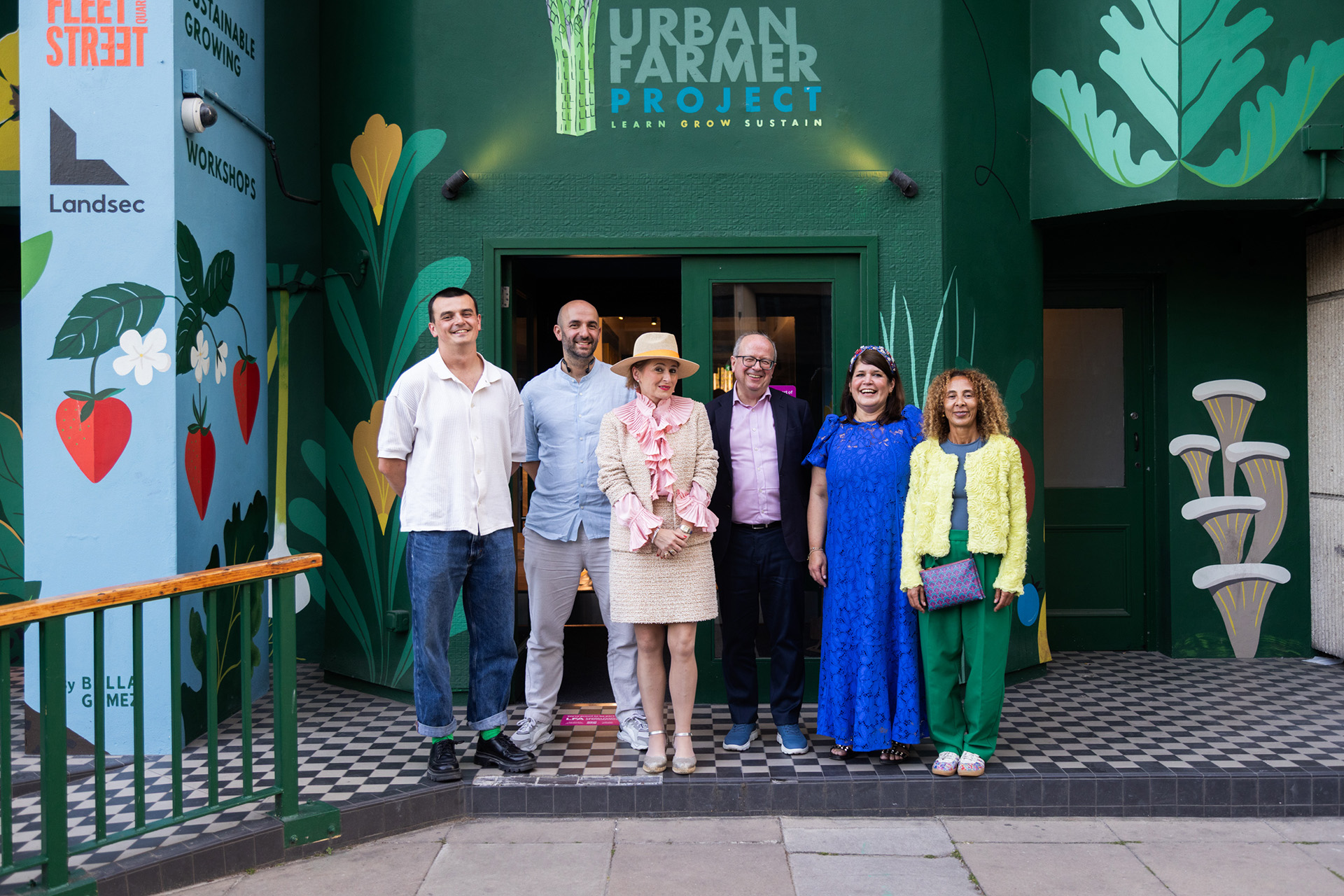
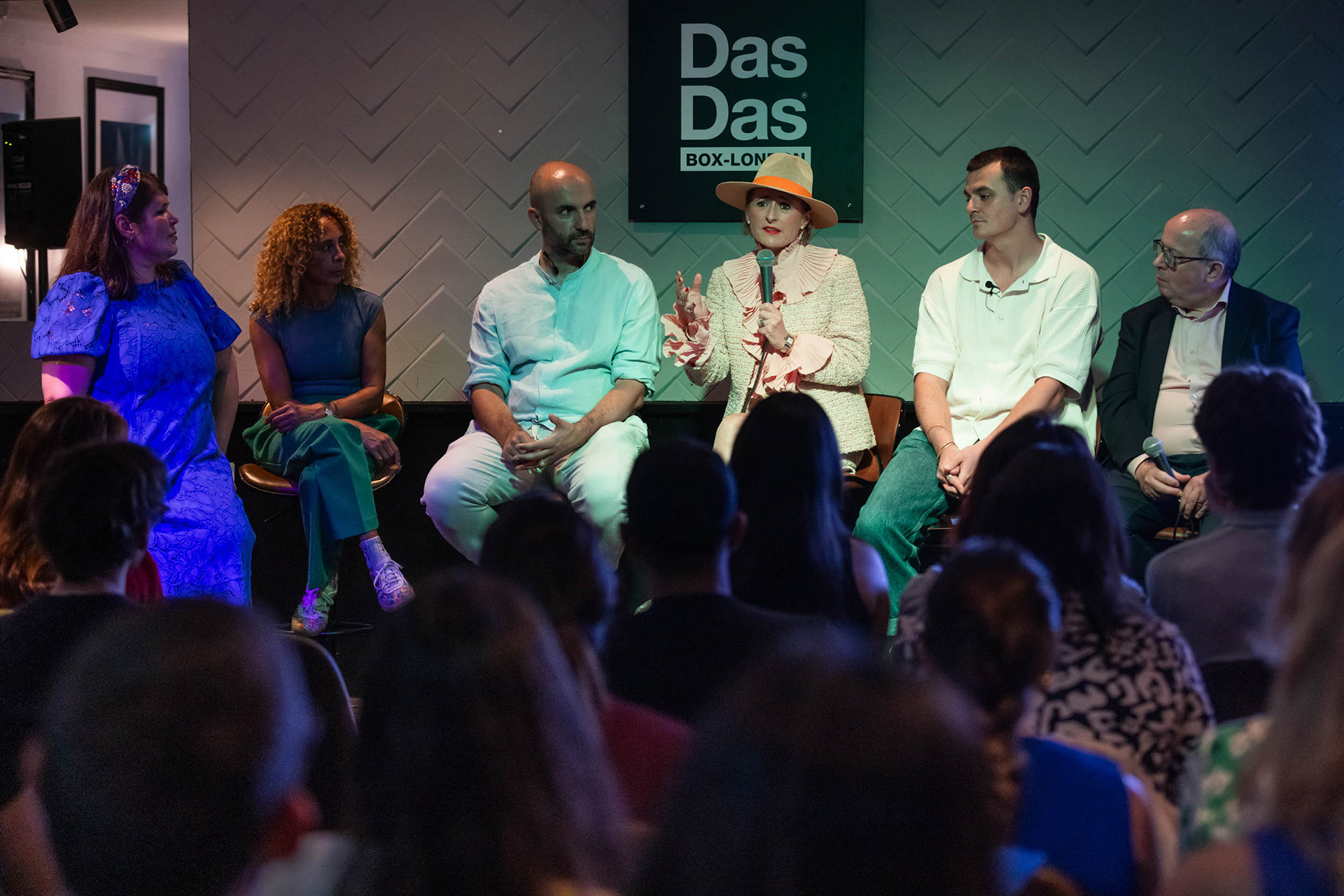
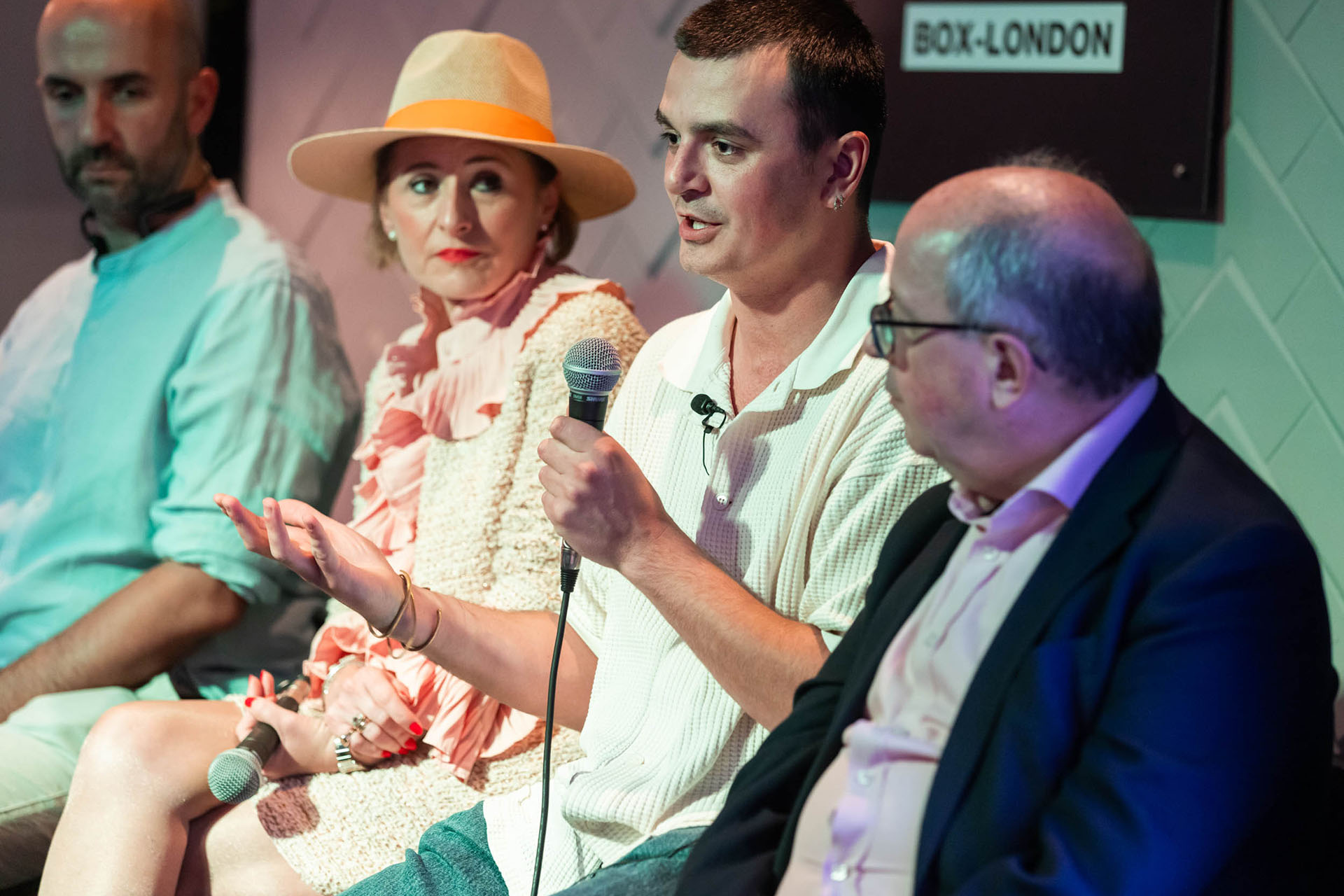
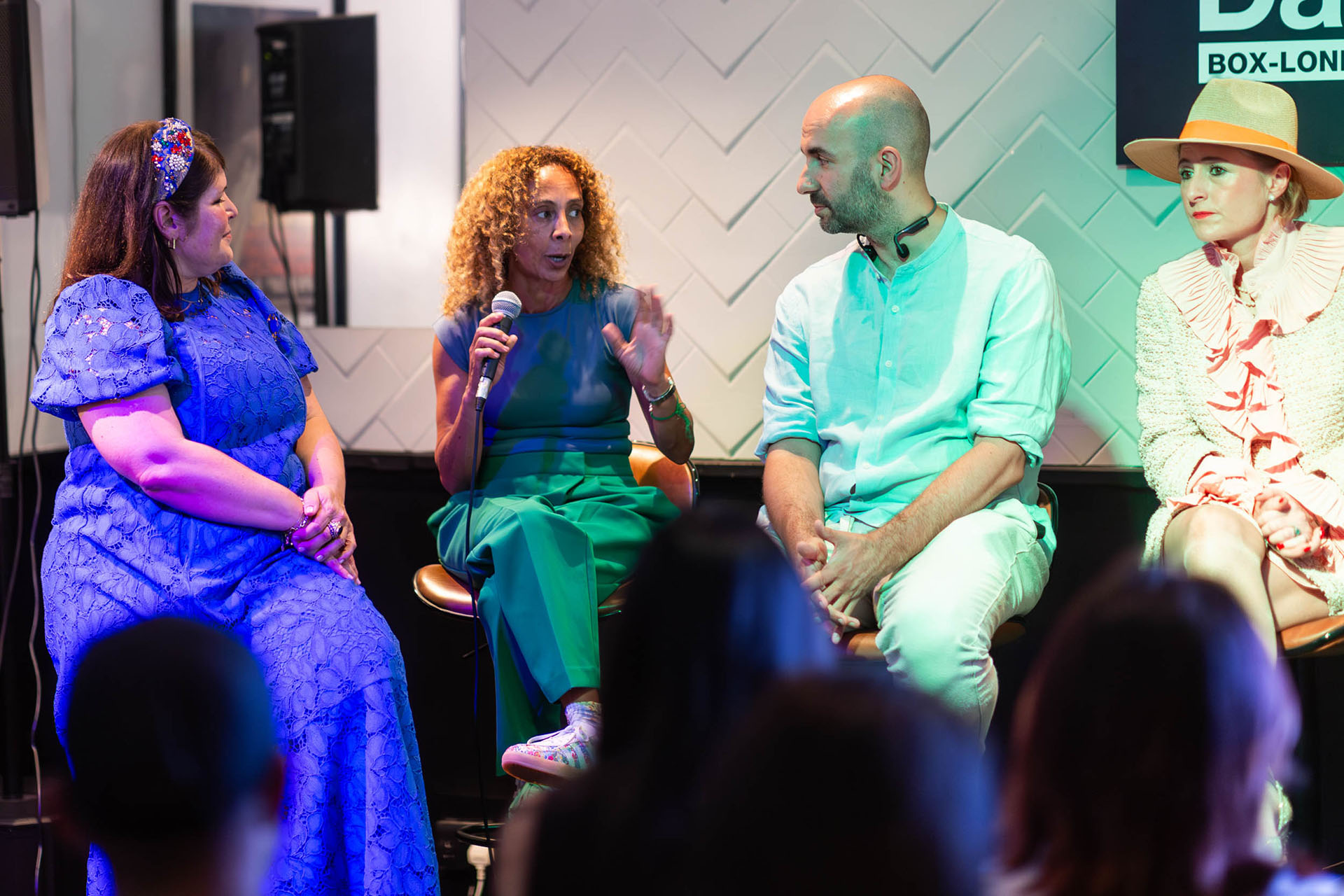
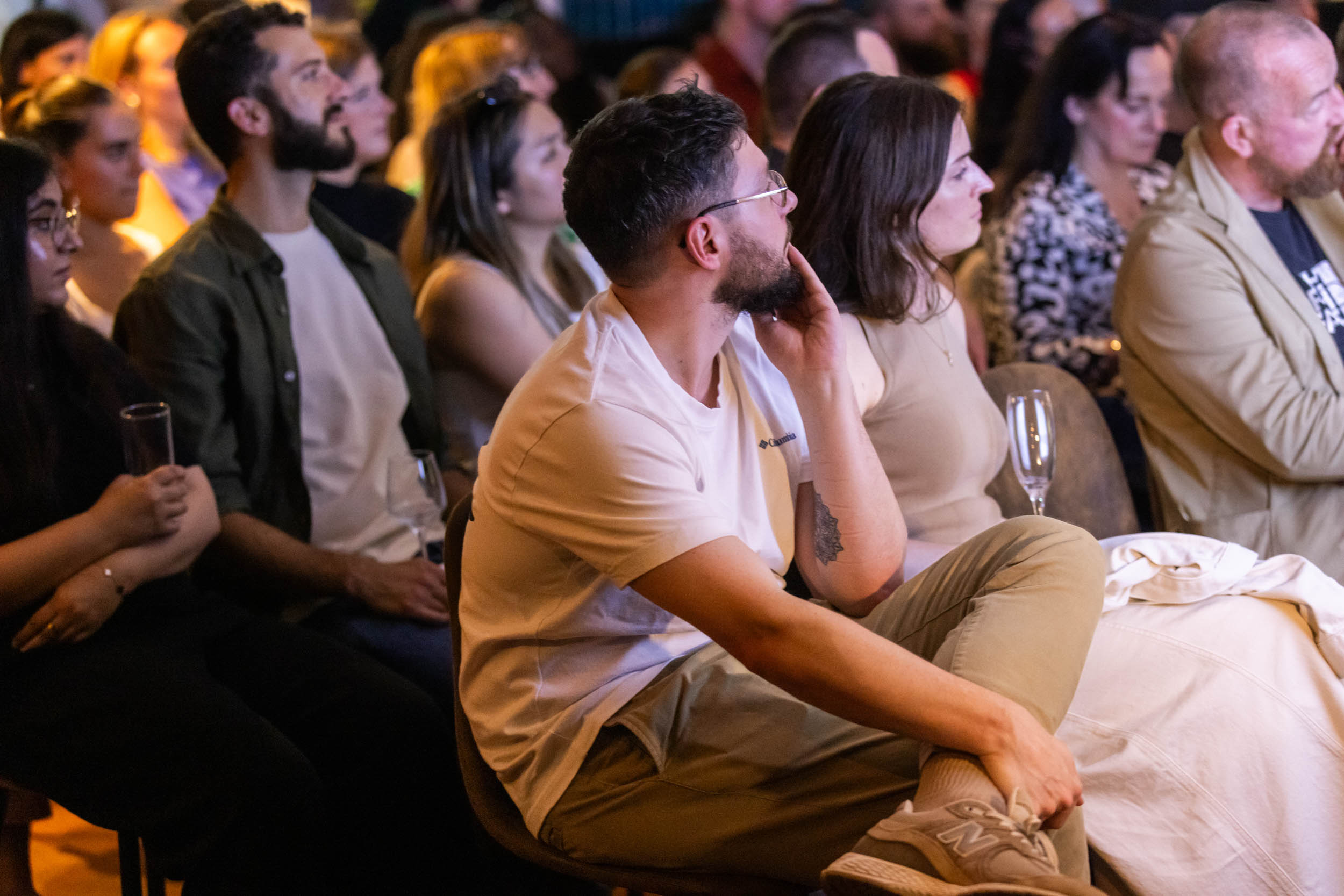
The Circular Kitchen is special because it’s been shaped by the people who’ll use it. It isn’t a gesture – it’s a tool that amplifies what this community already does so well.
Karla Bonner, Architect at Stride Treglown
Step 8:
Bring the ingredients together
Design consultants Public Works refine and build the main structure. Meanwhile, the students, joined by members of the original cohort, oversee the kitchen’s completion and participate in a natural dye workshop to create its protective cover. True to form, the kitchen is built almost entirely from reclaimed materials.
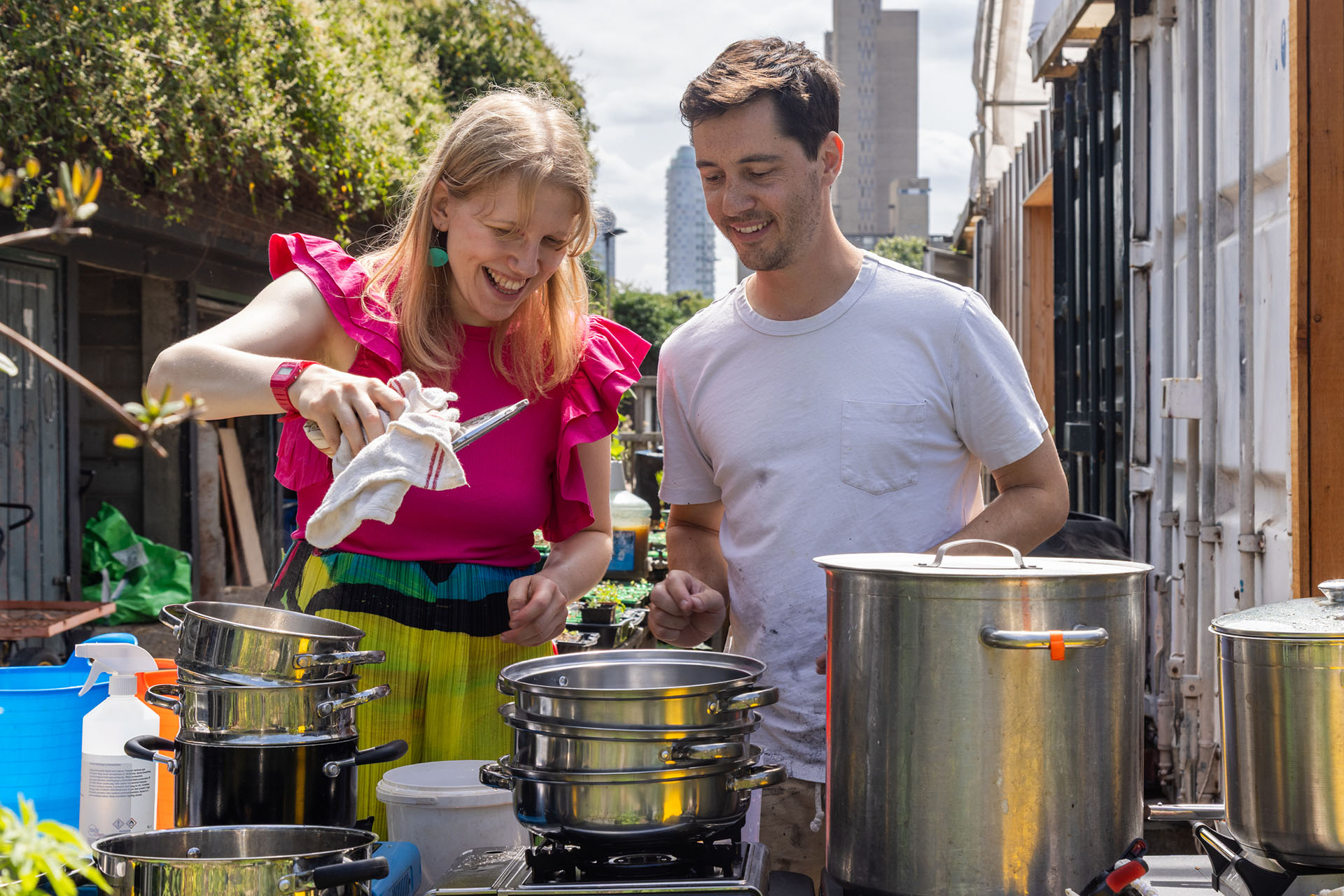
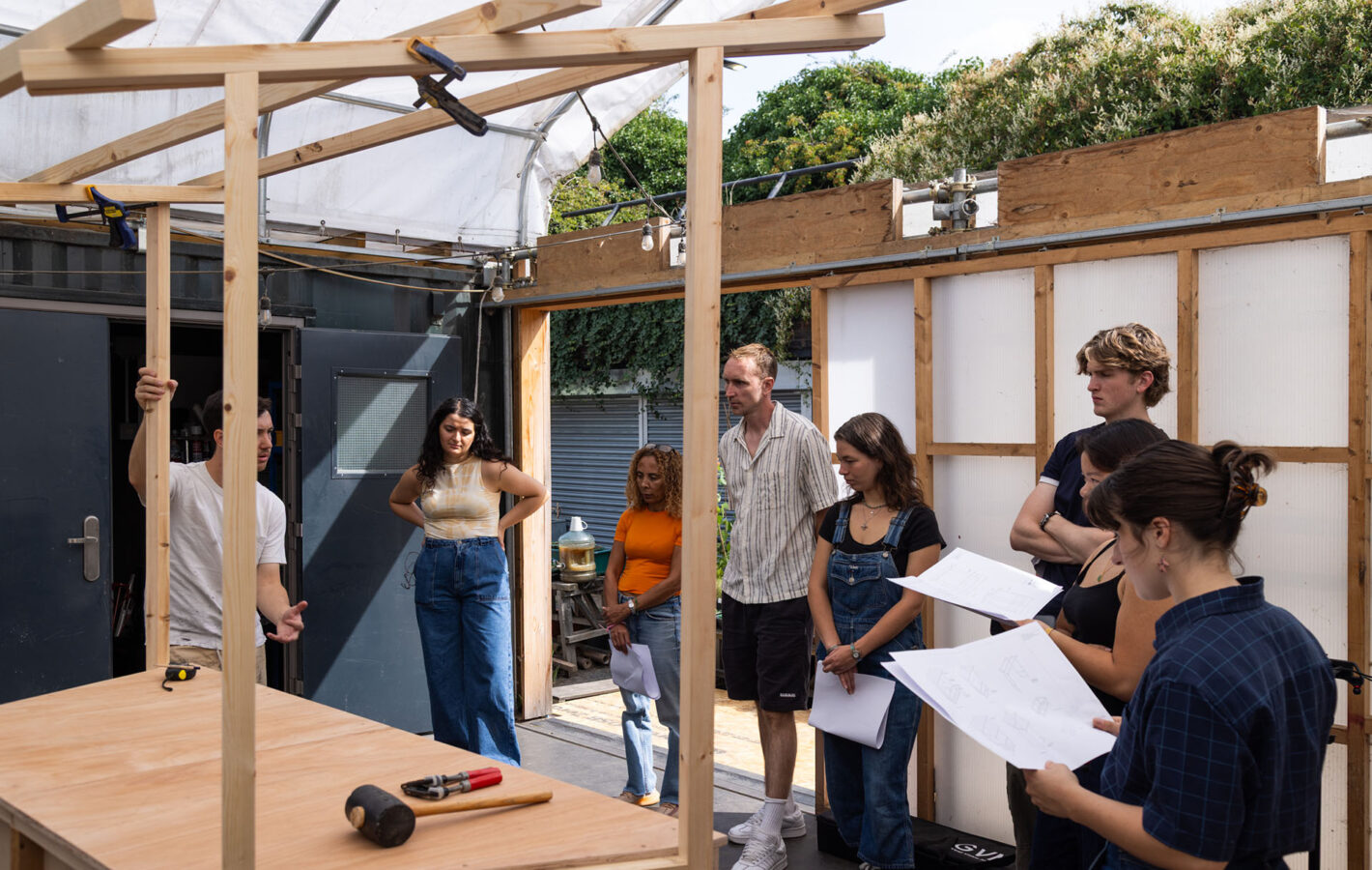
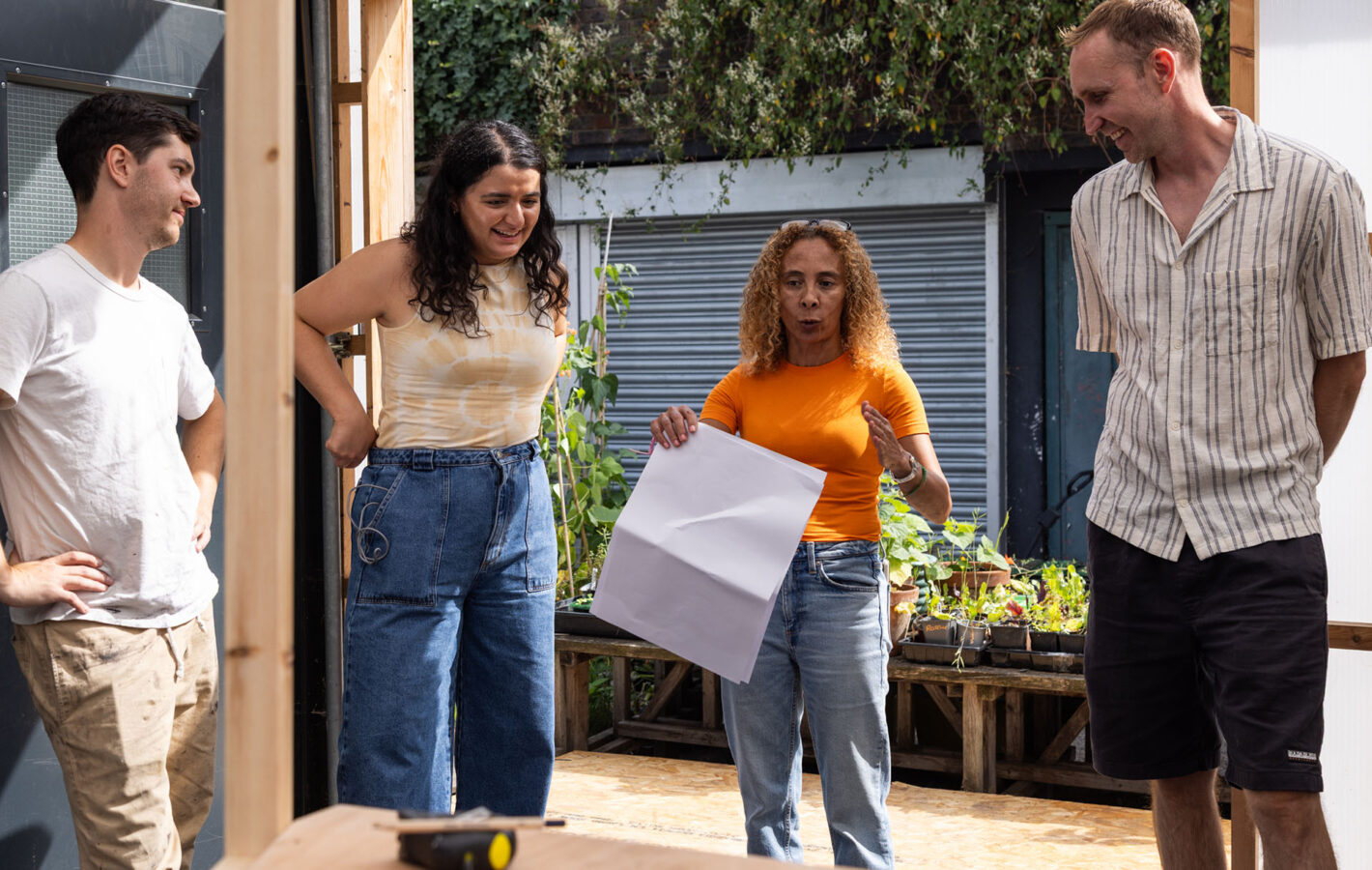
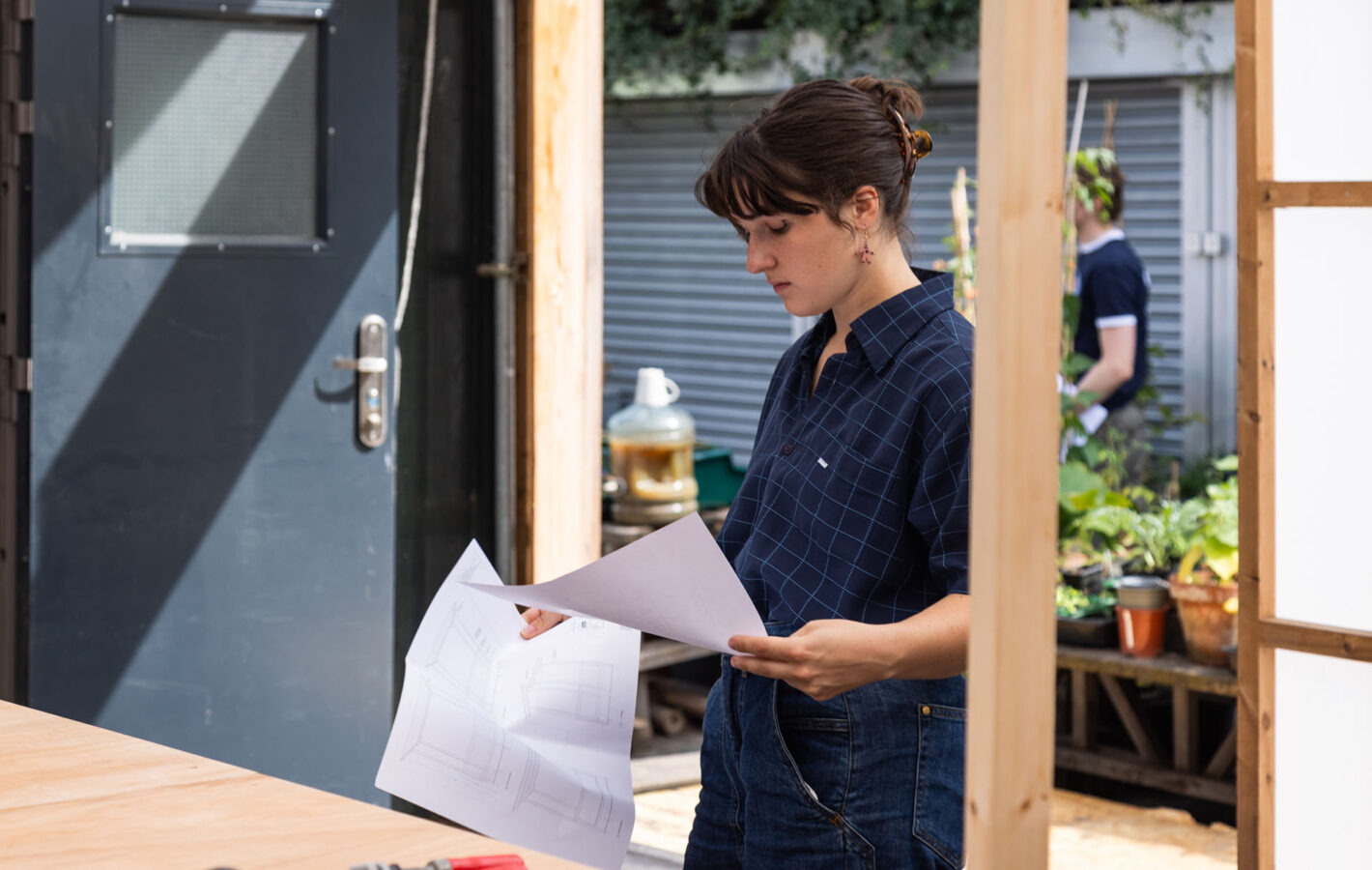
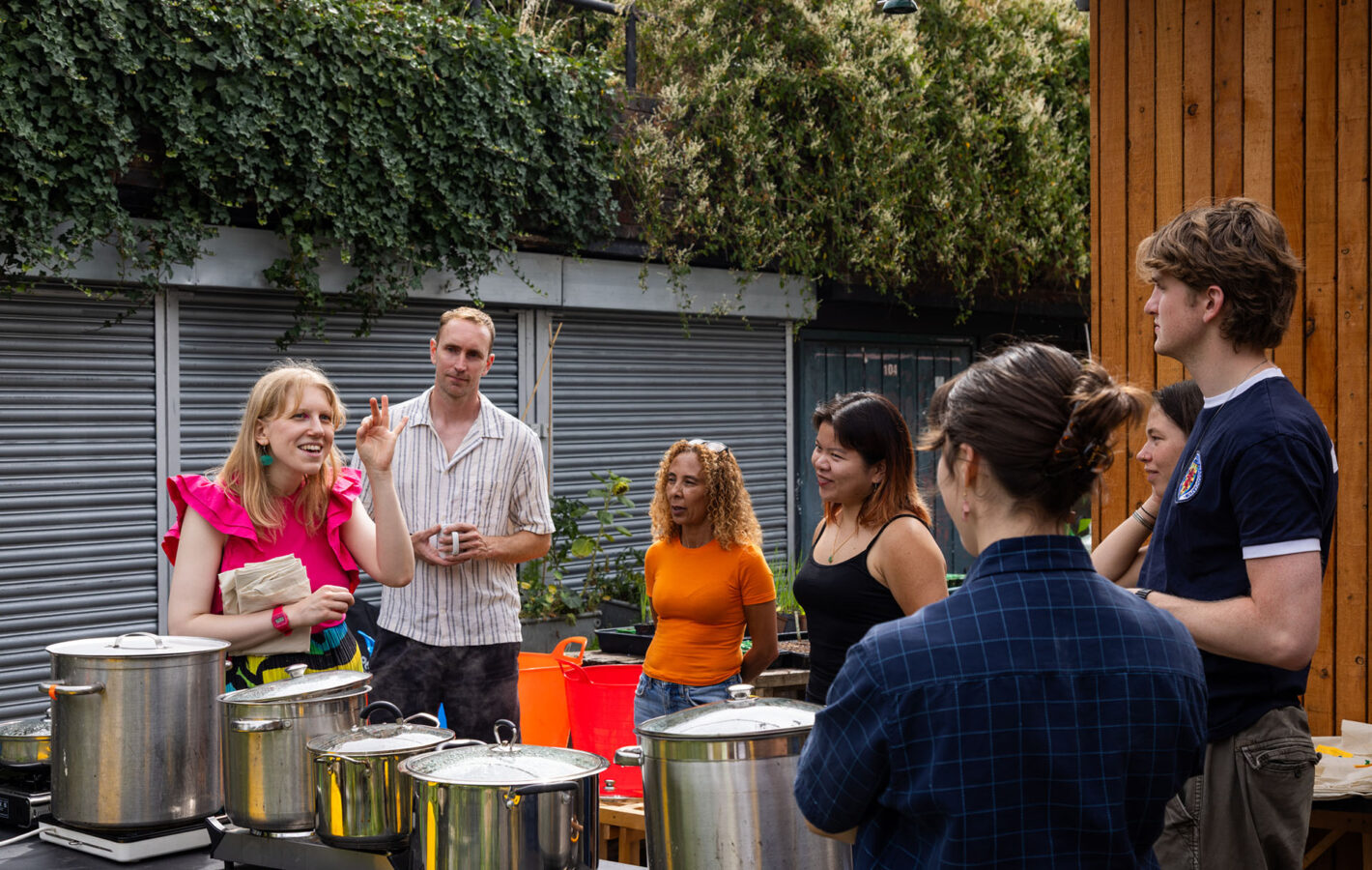
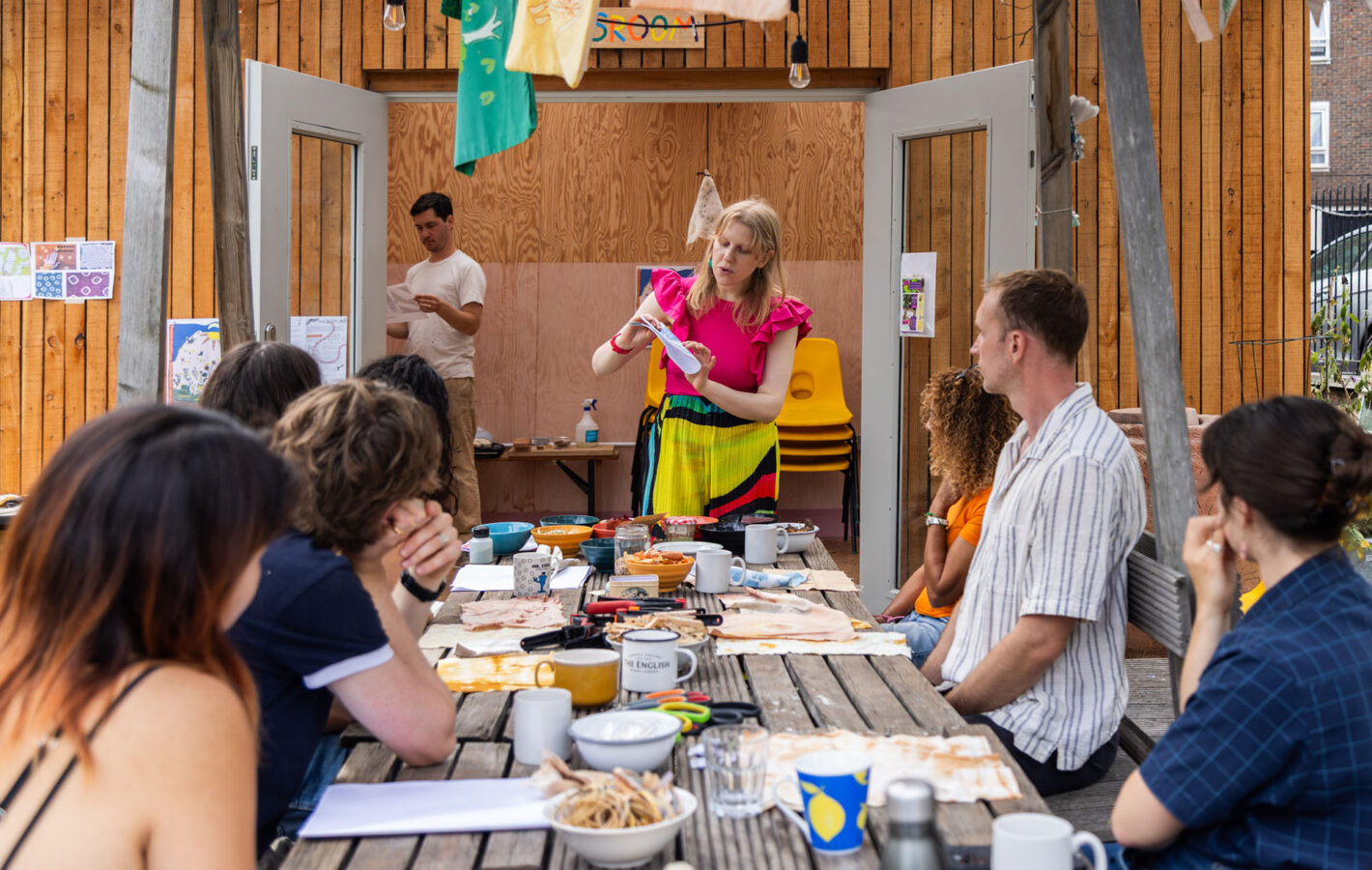
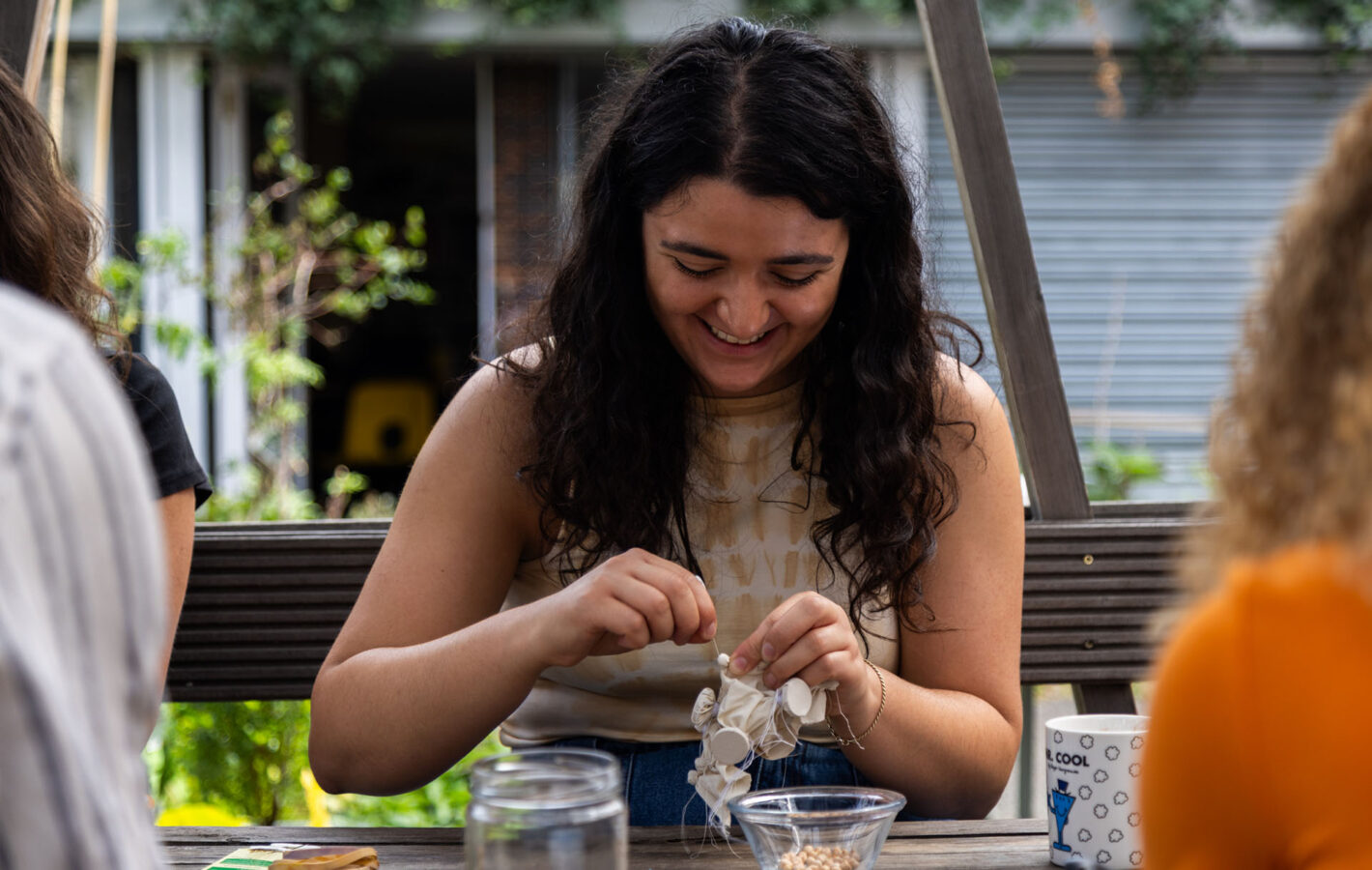
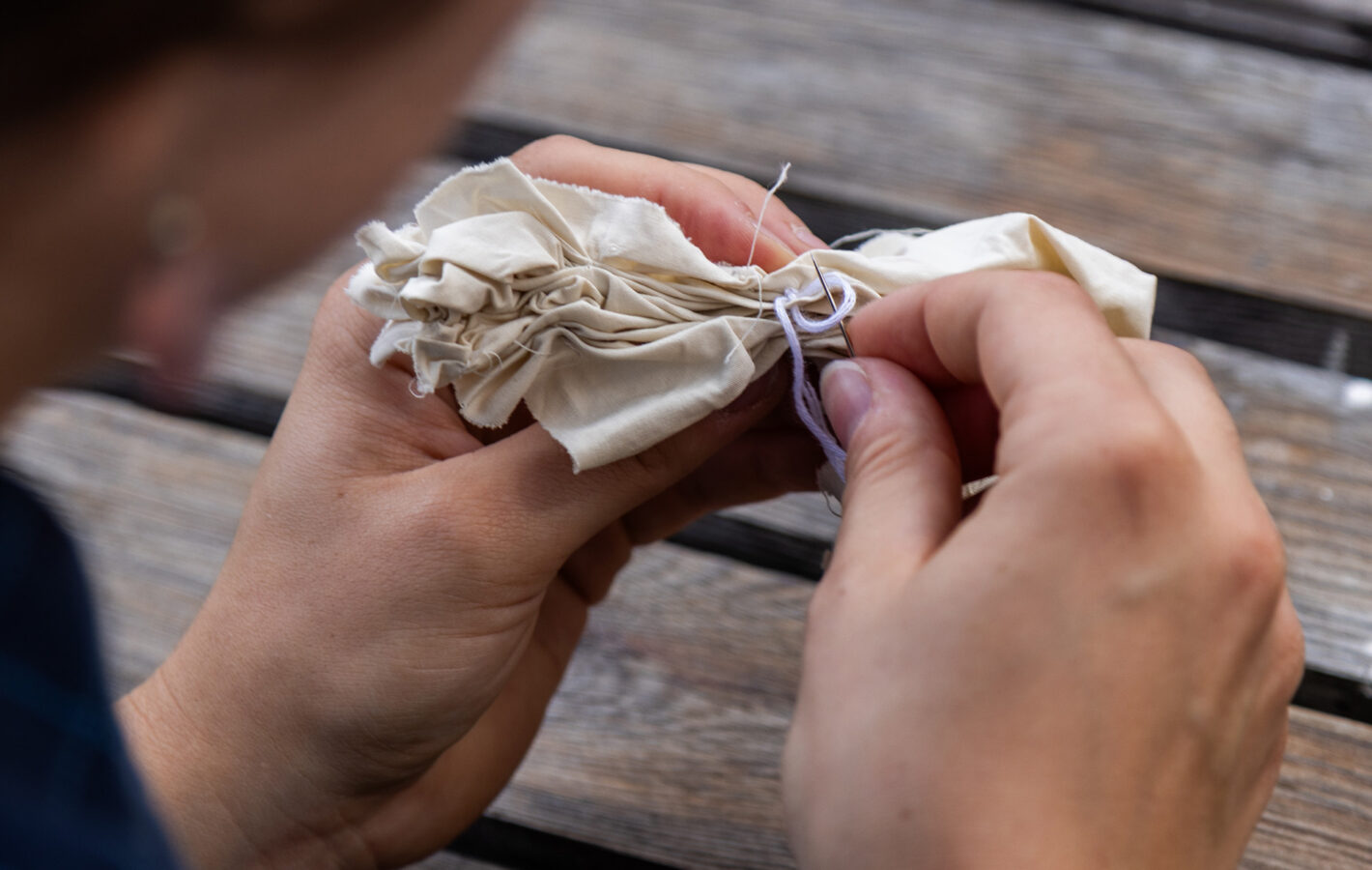
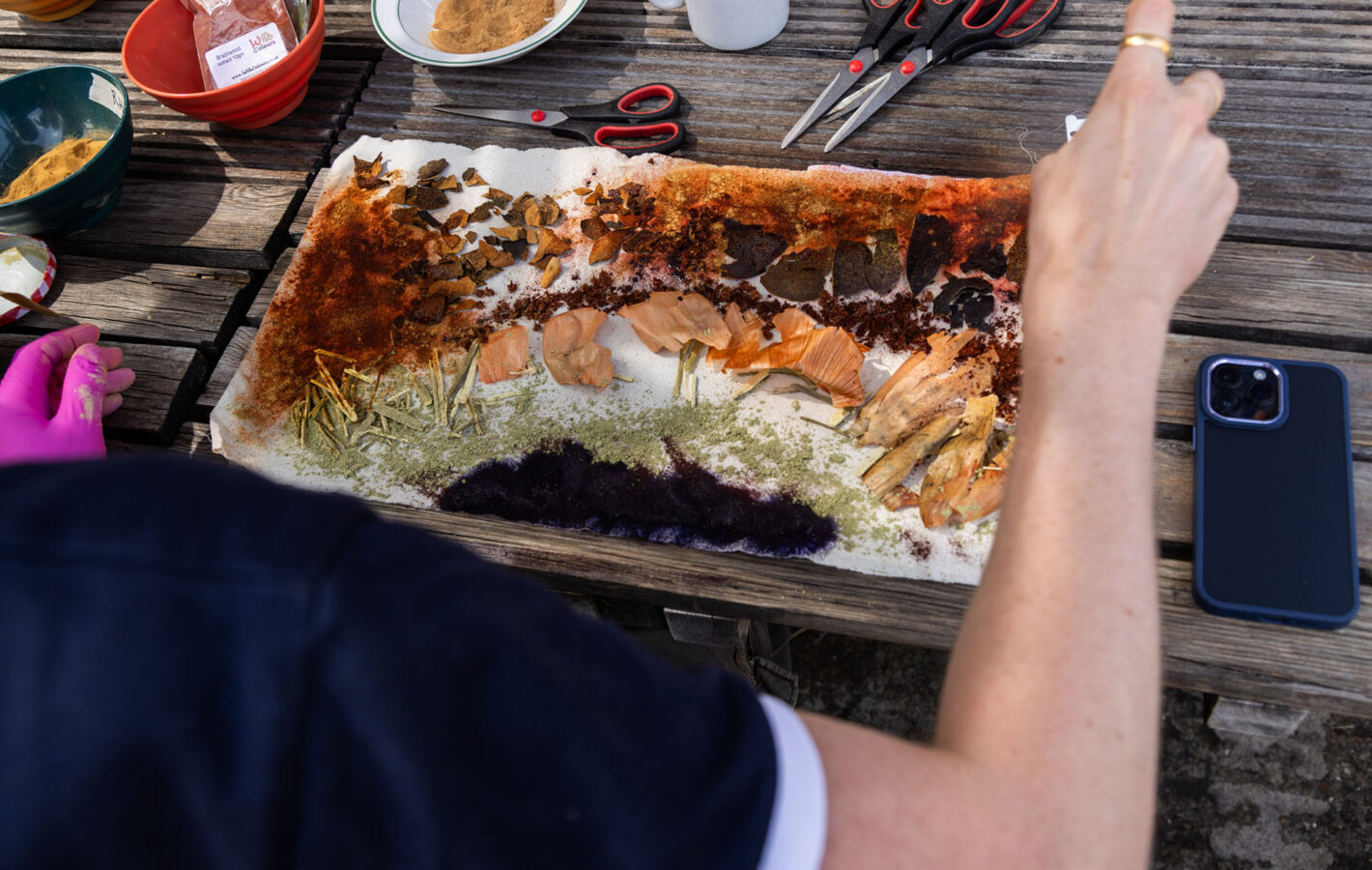
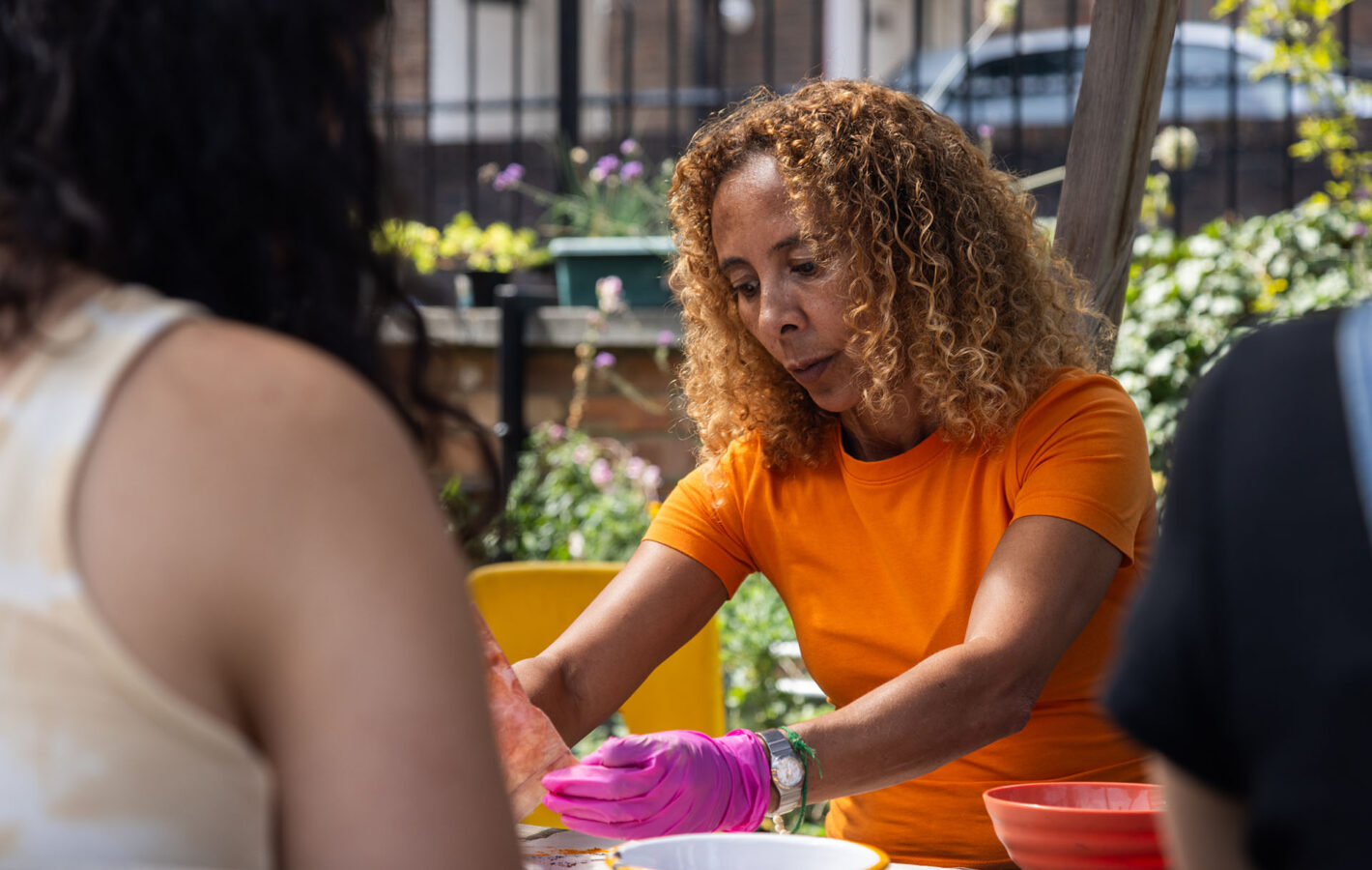
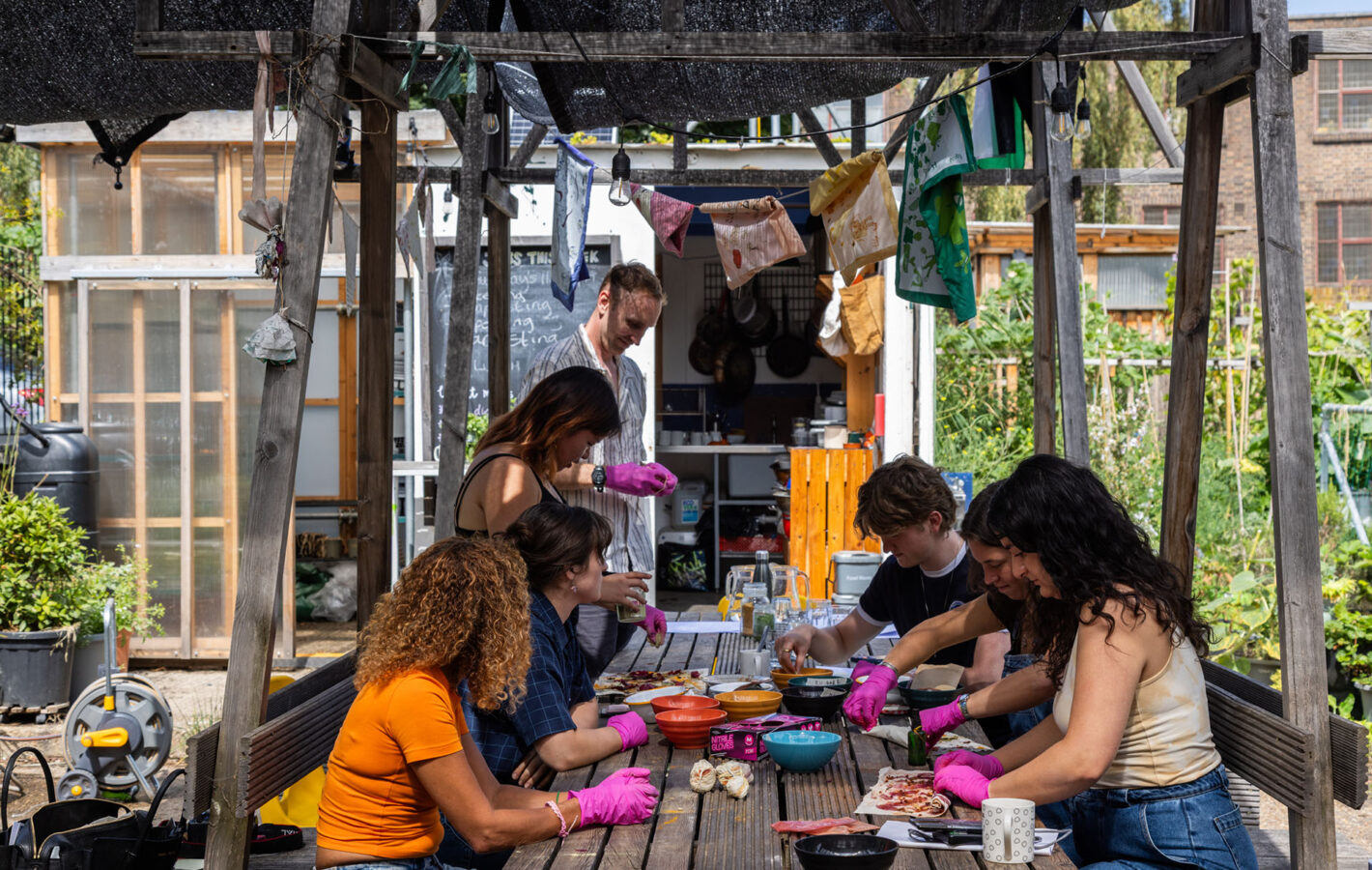
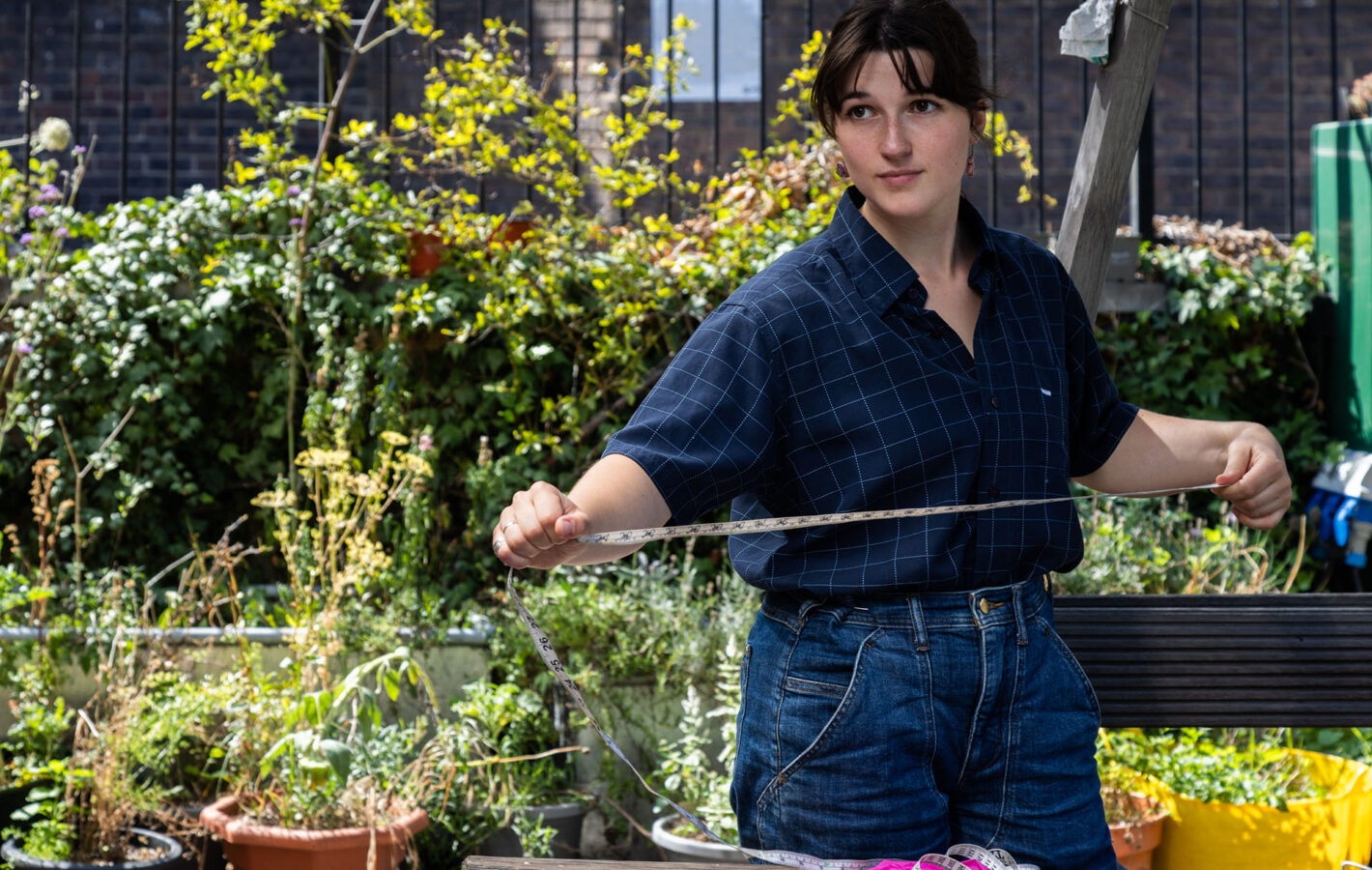
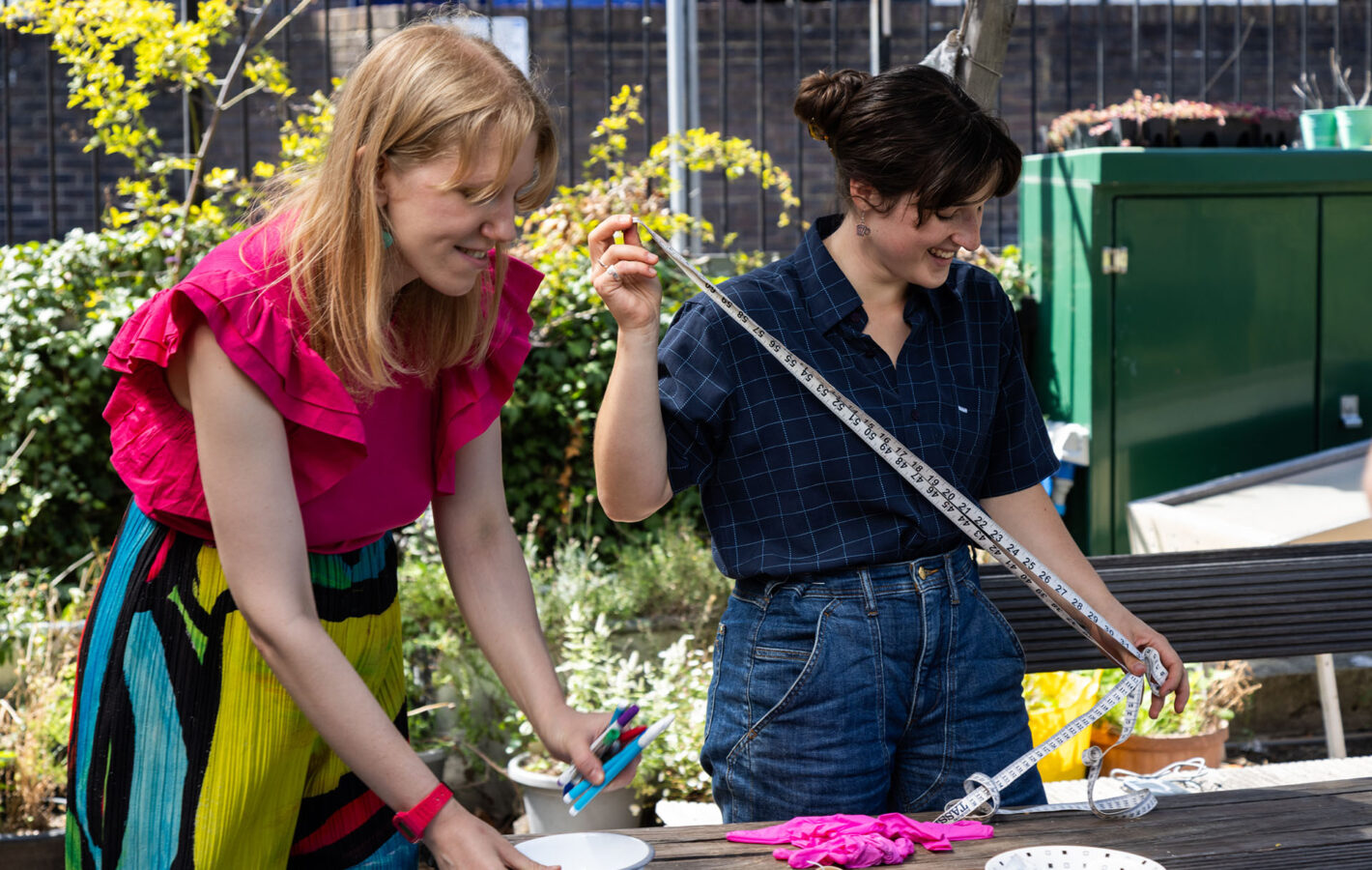
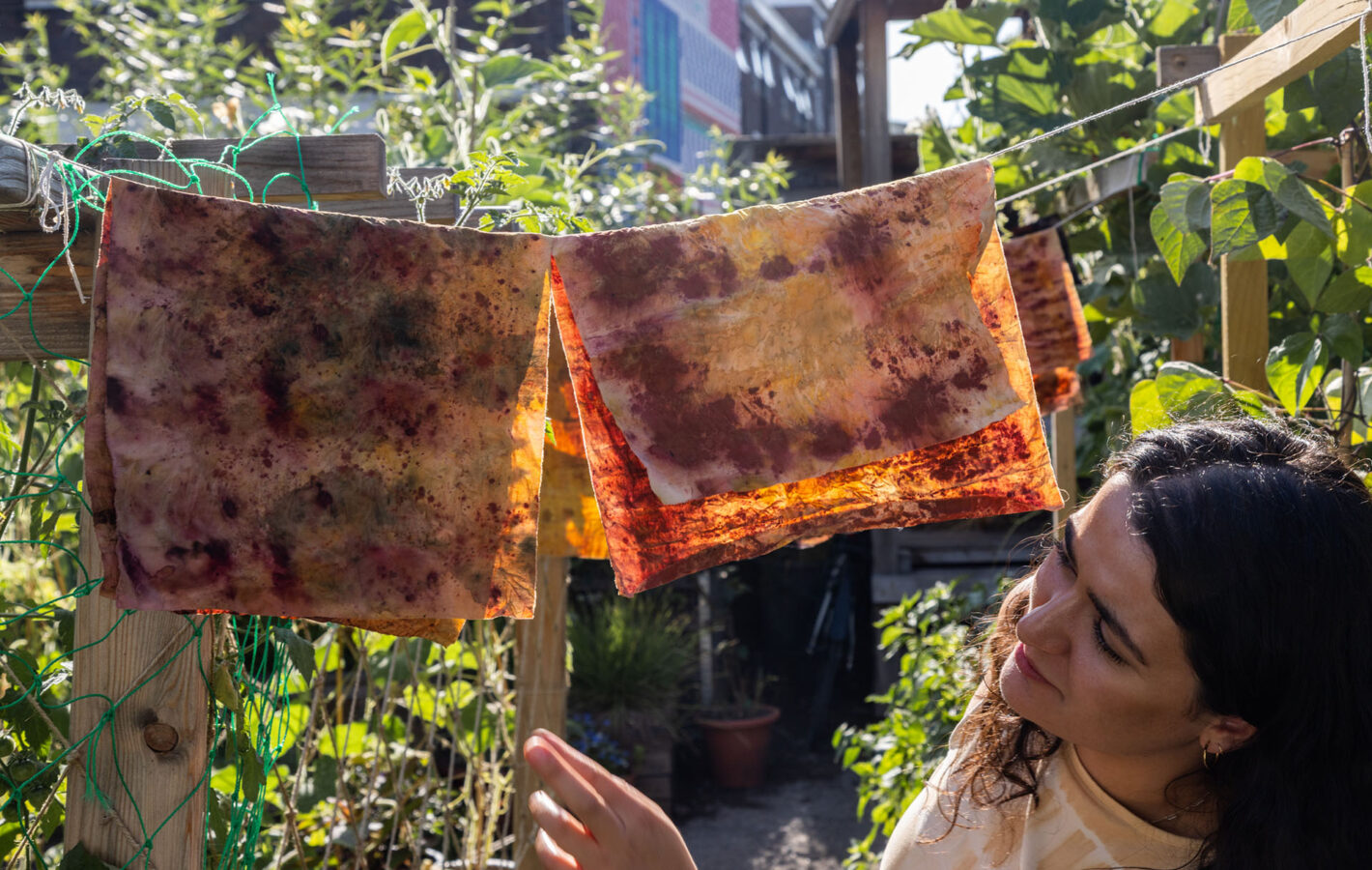
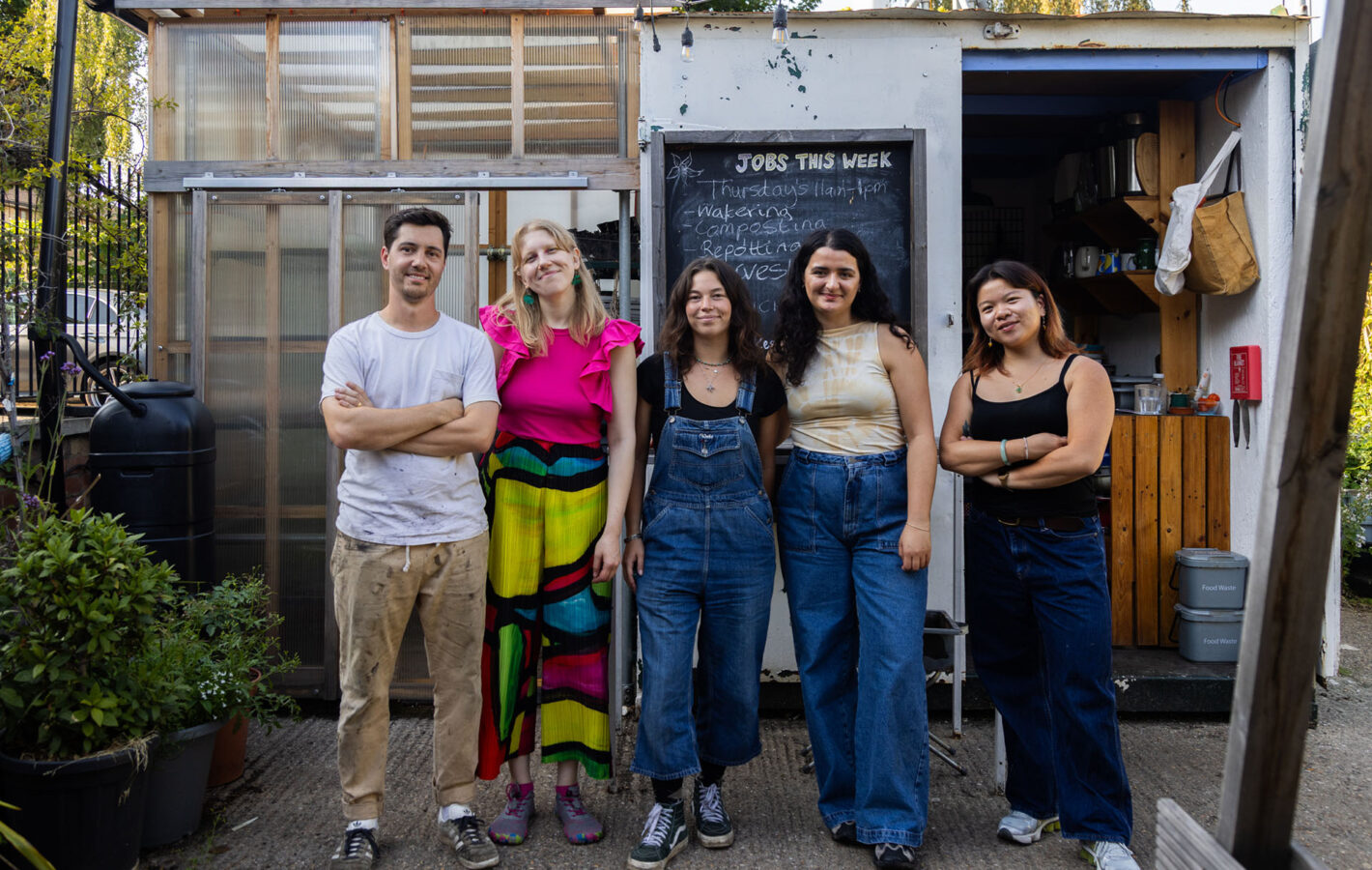
Step 9:
Launch over lunch
The finished Circular Kitchen is delivered to WCCC in September 2025. Without delay, they hold their first community workshop, where Resident Chef Brian teaches the Vietnamese Women’s Group how to prepare healthy, low-calorie, and delicious chicken wraps.
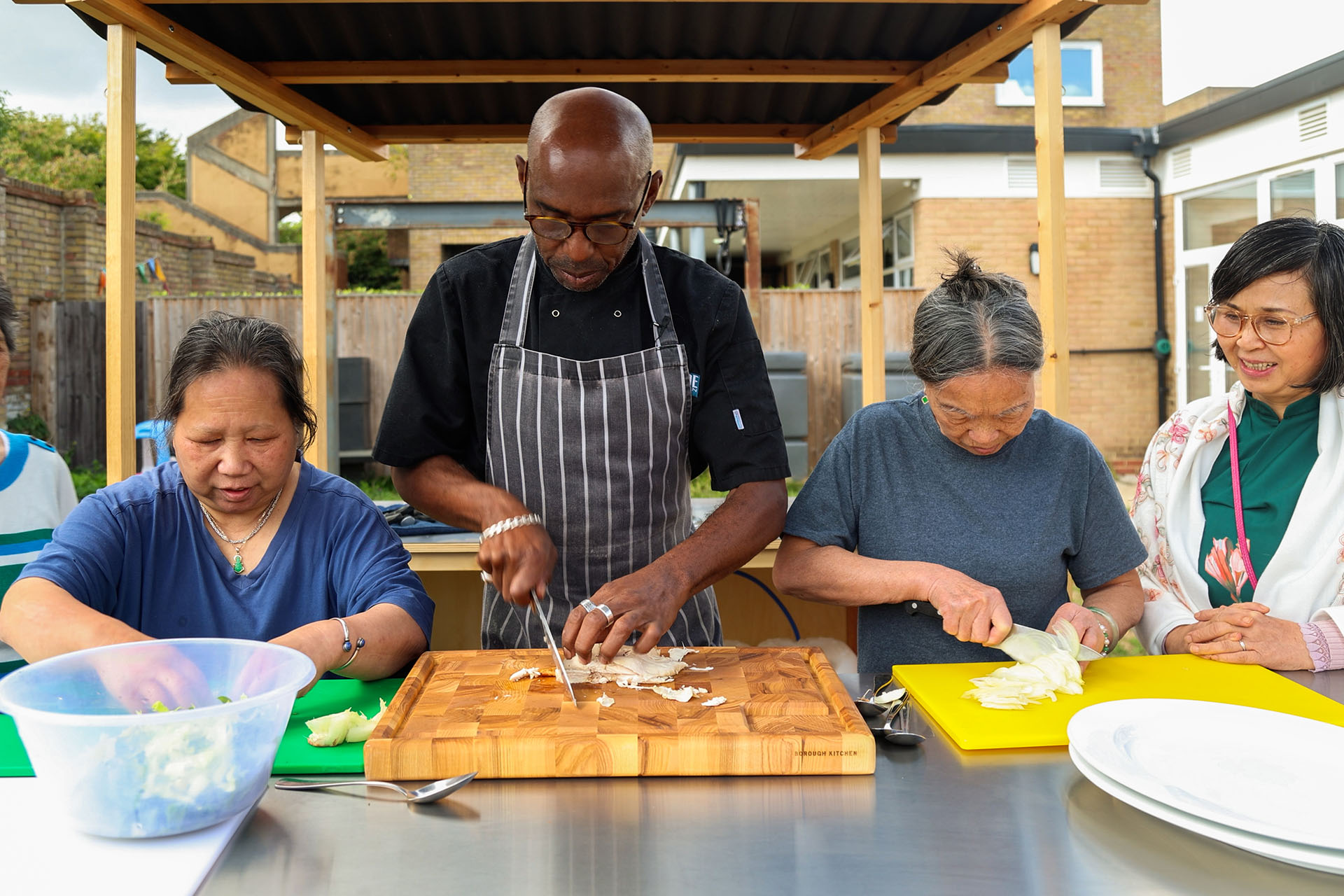
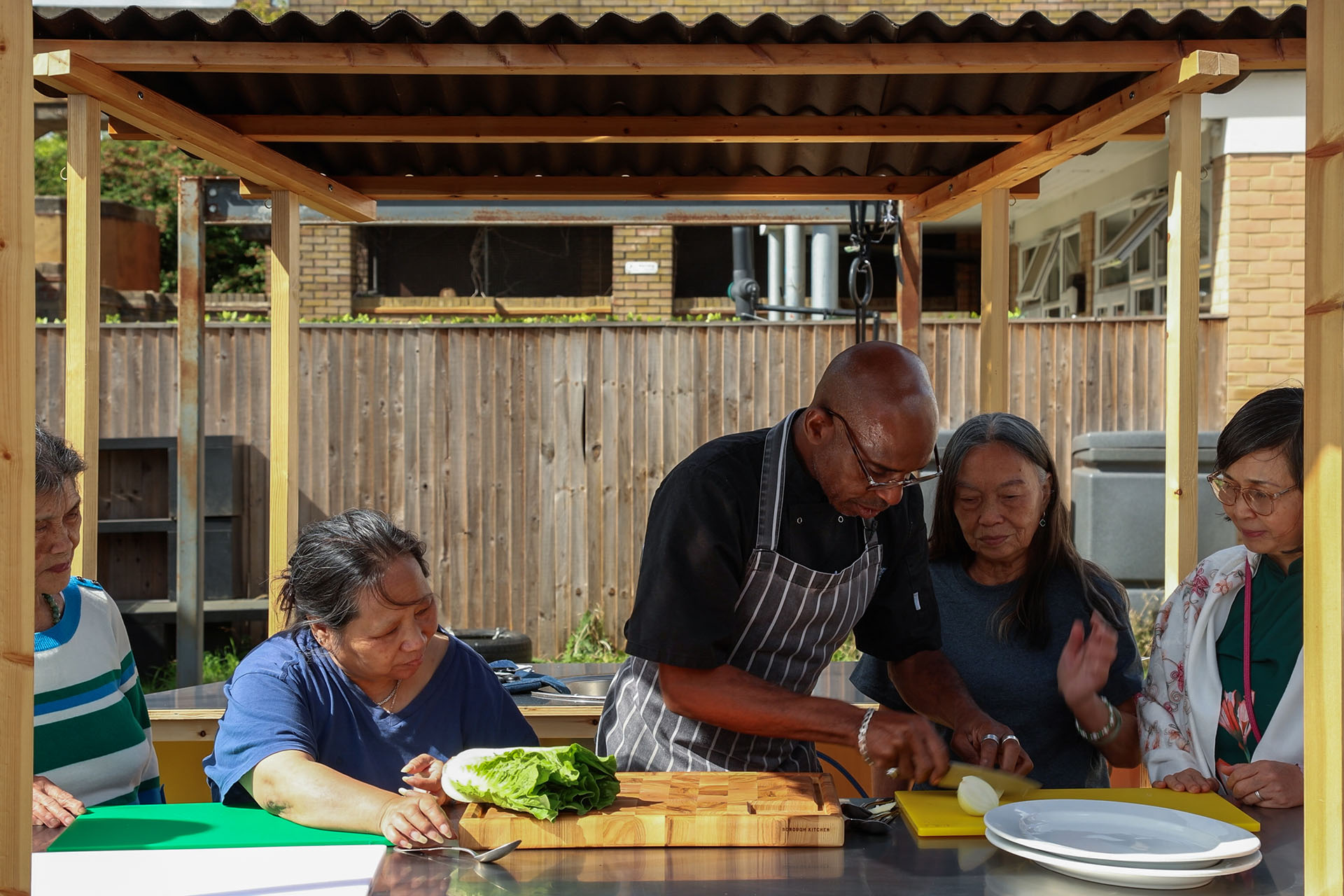
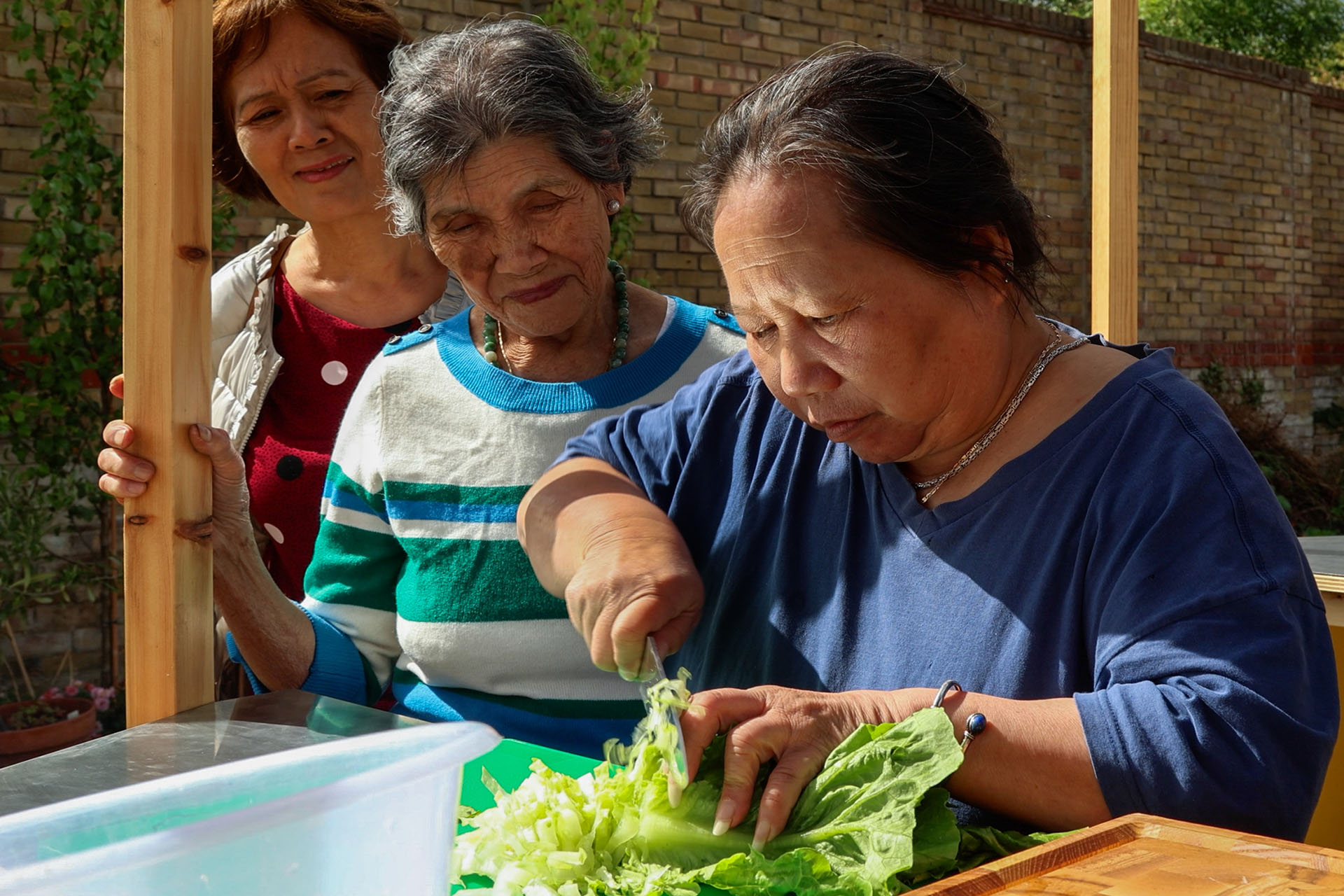
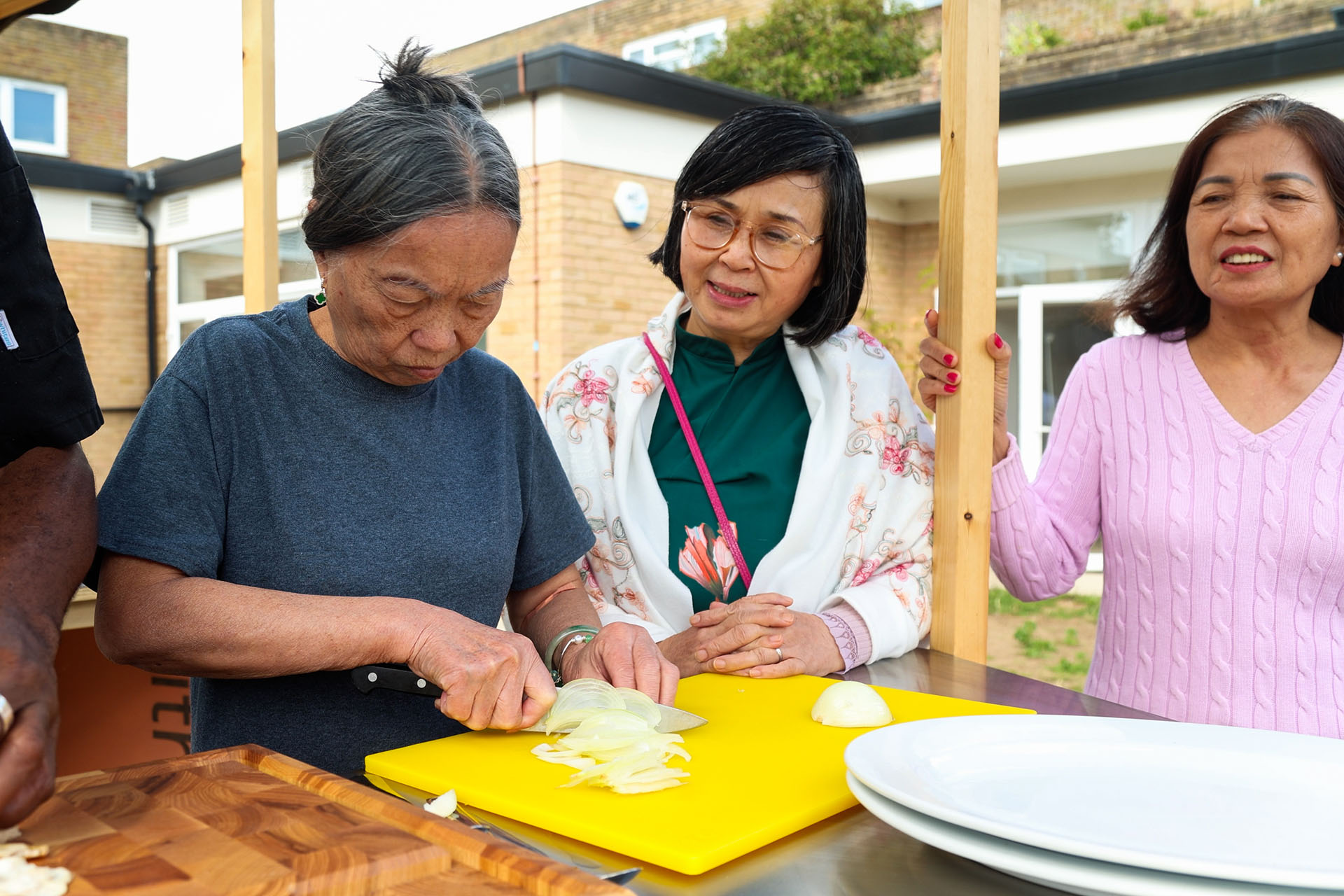
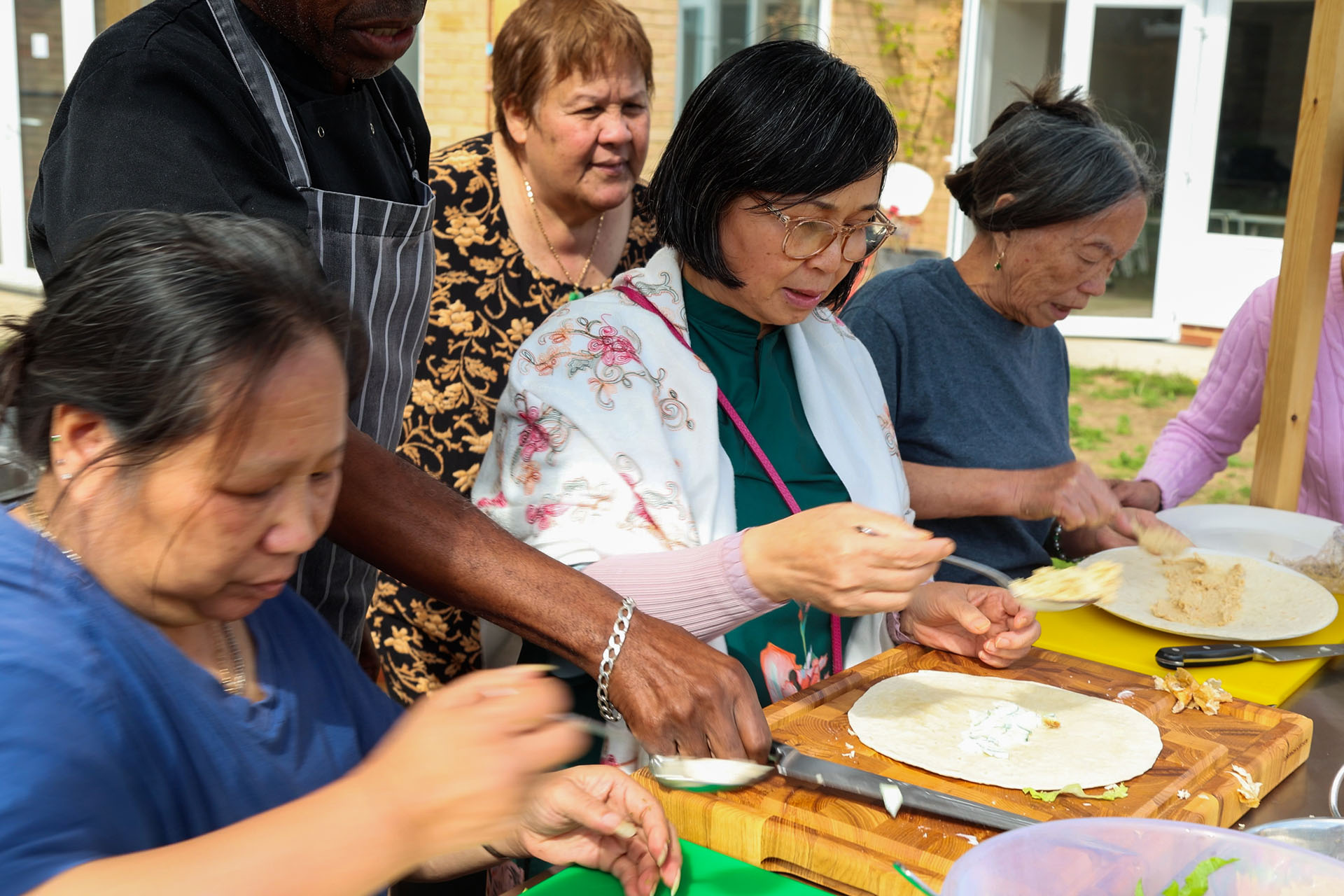
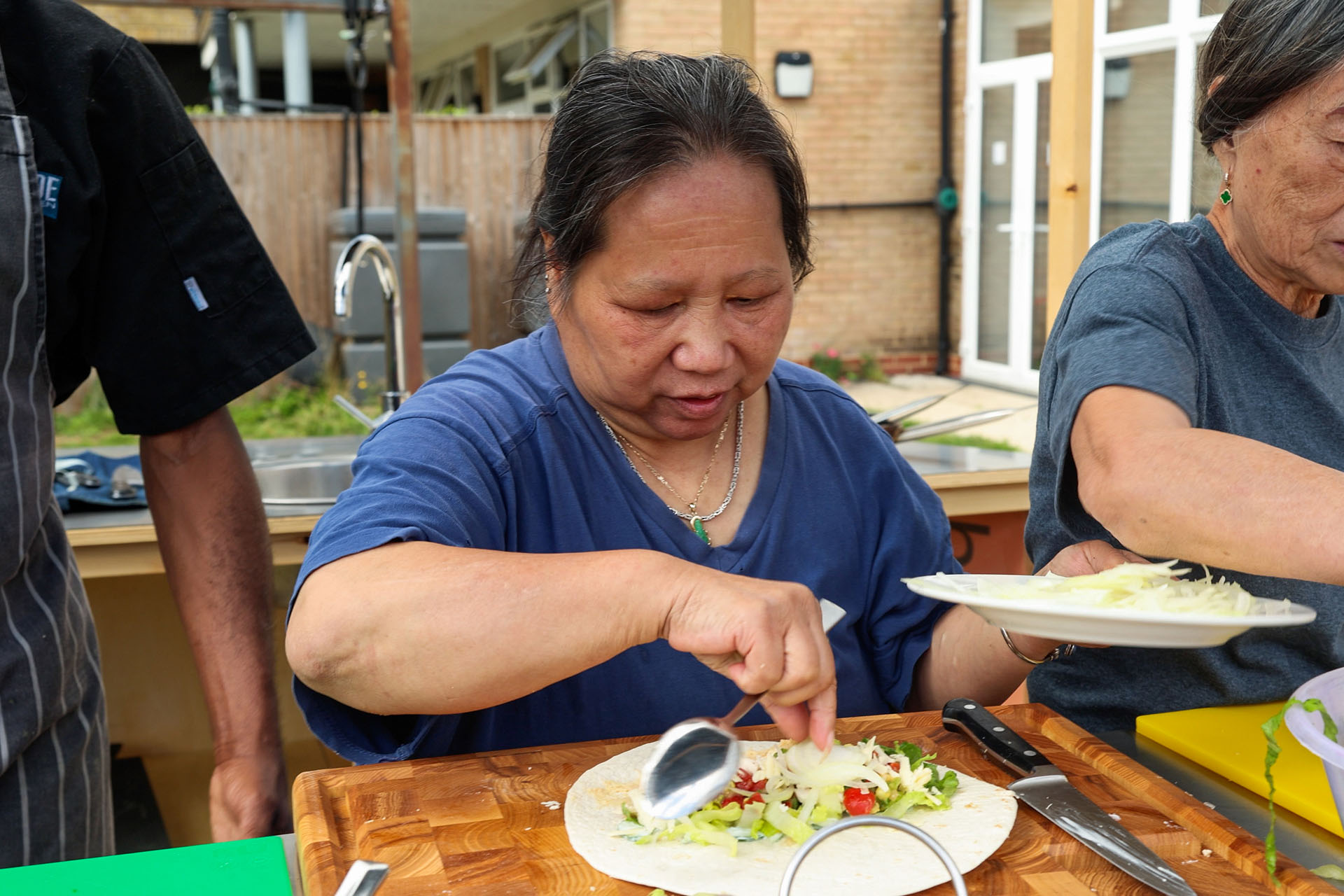
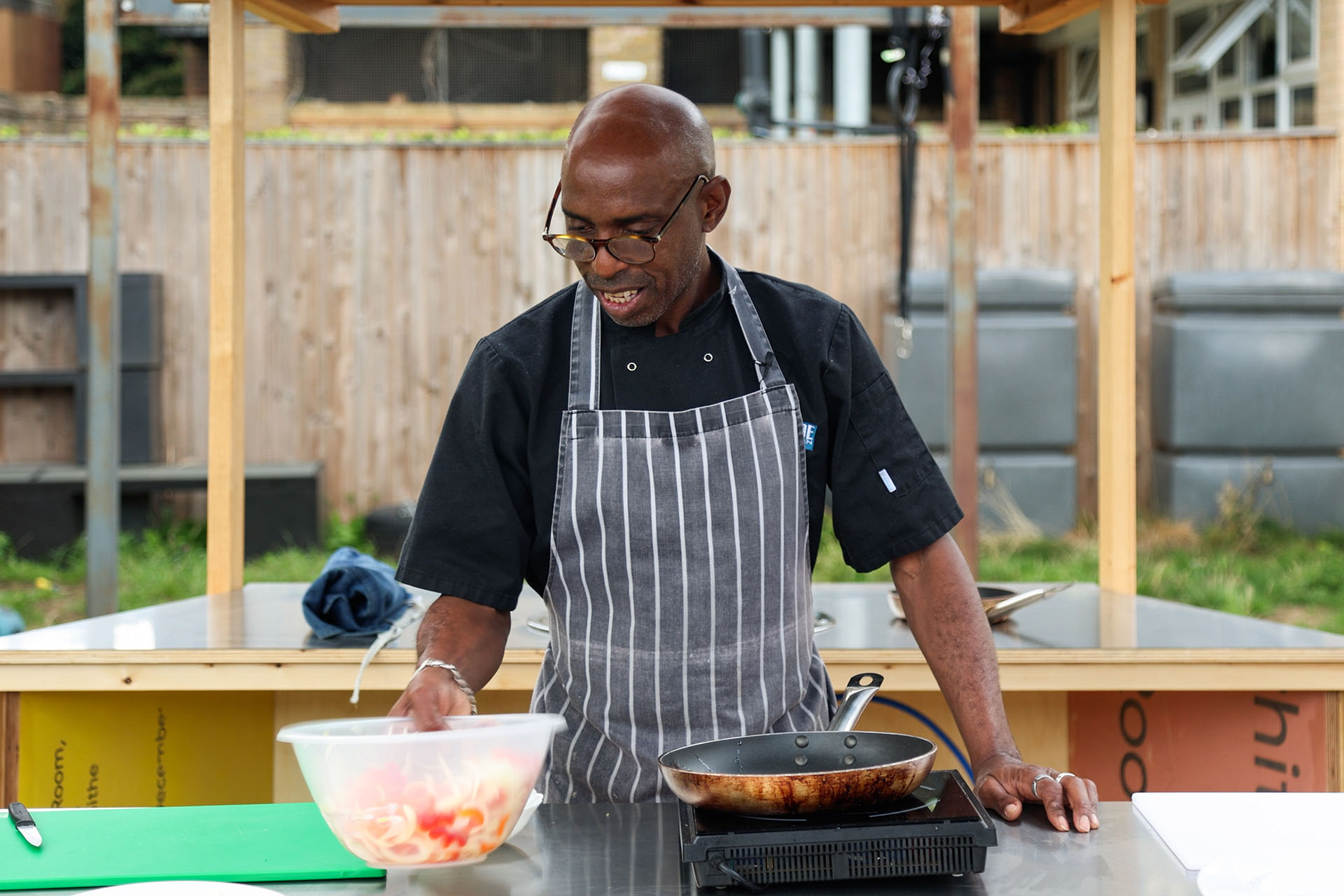
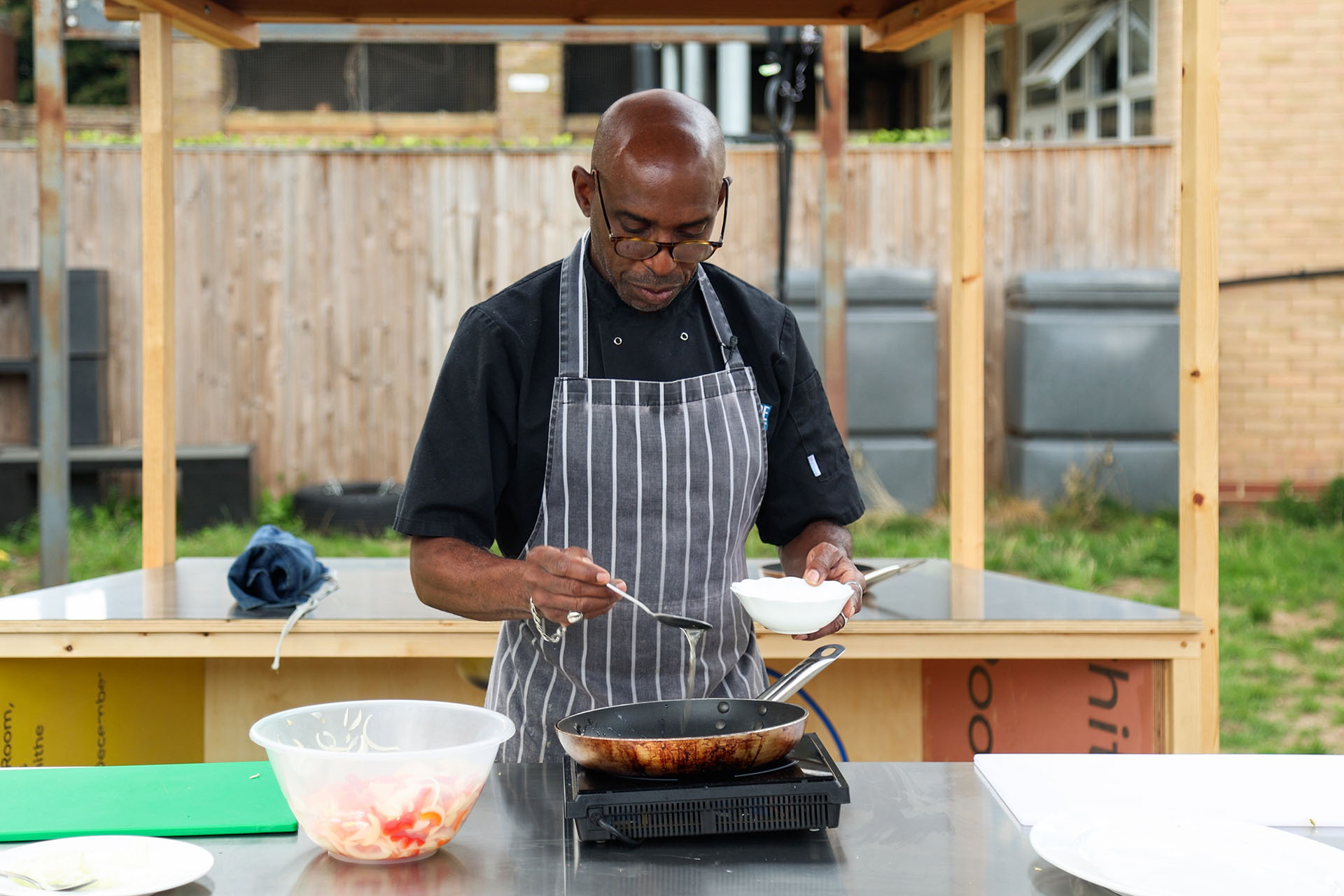
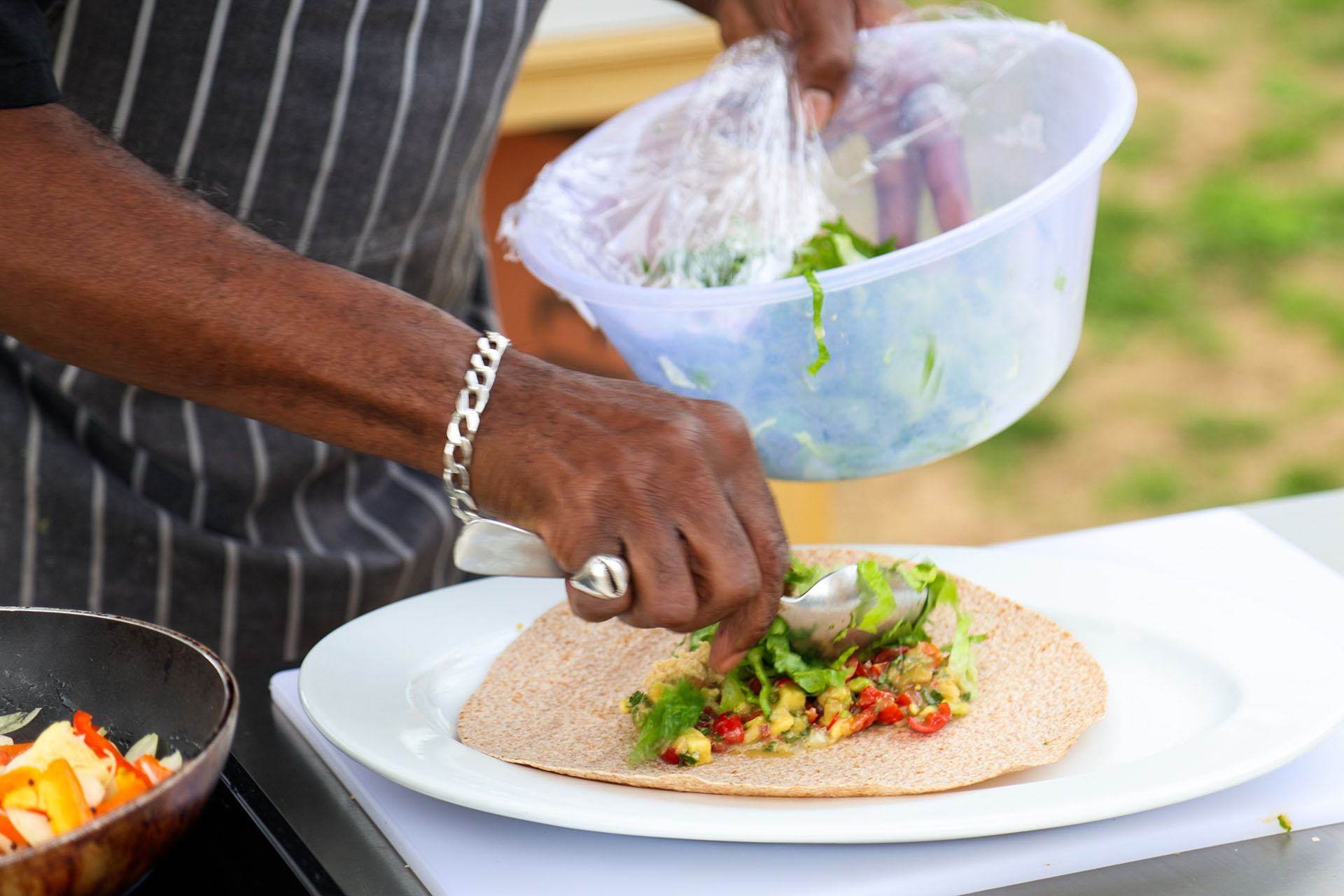
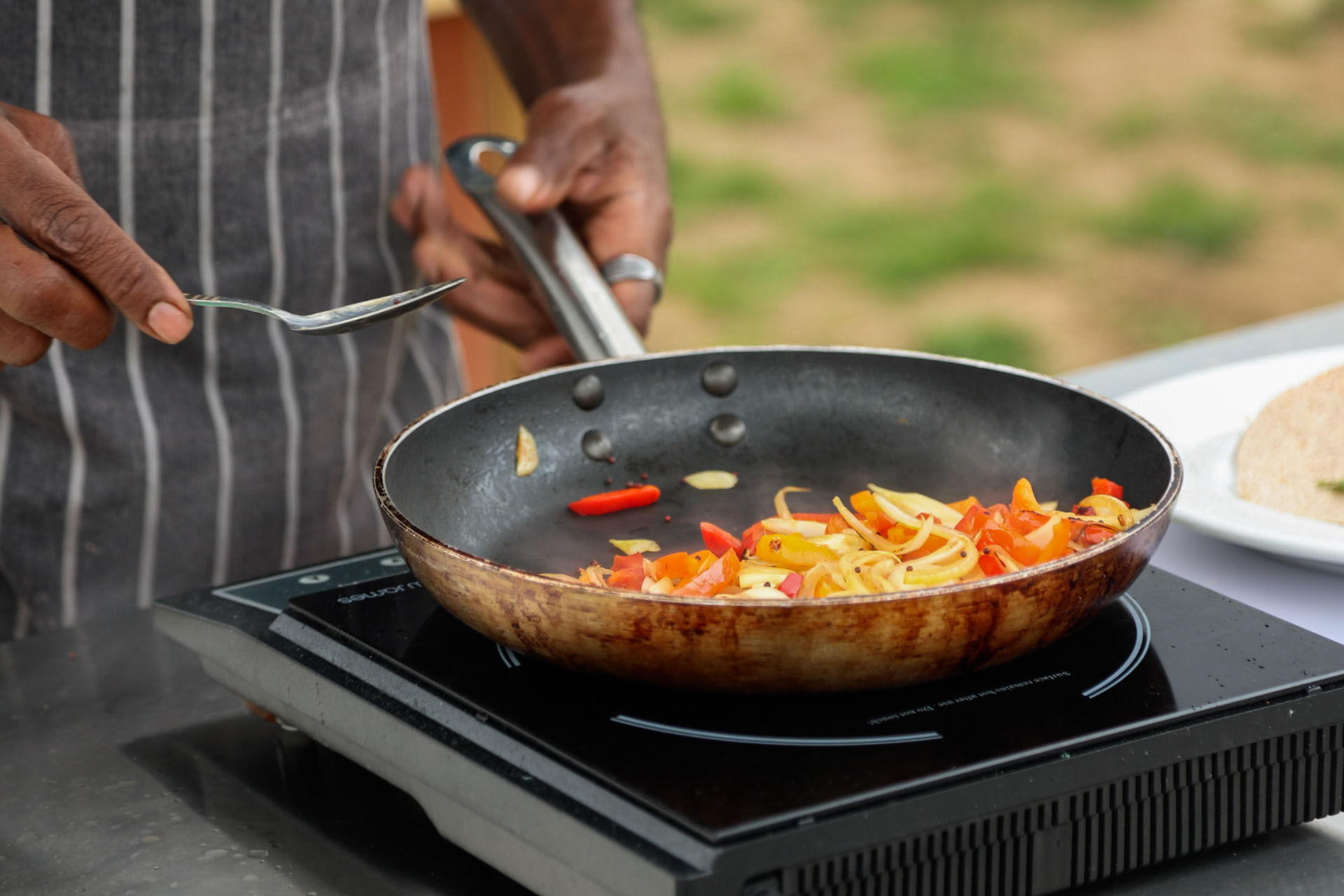
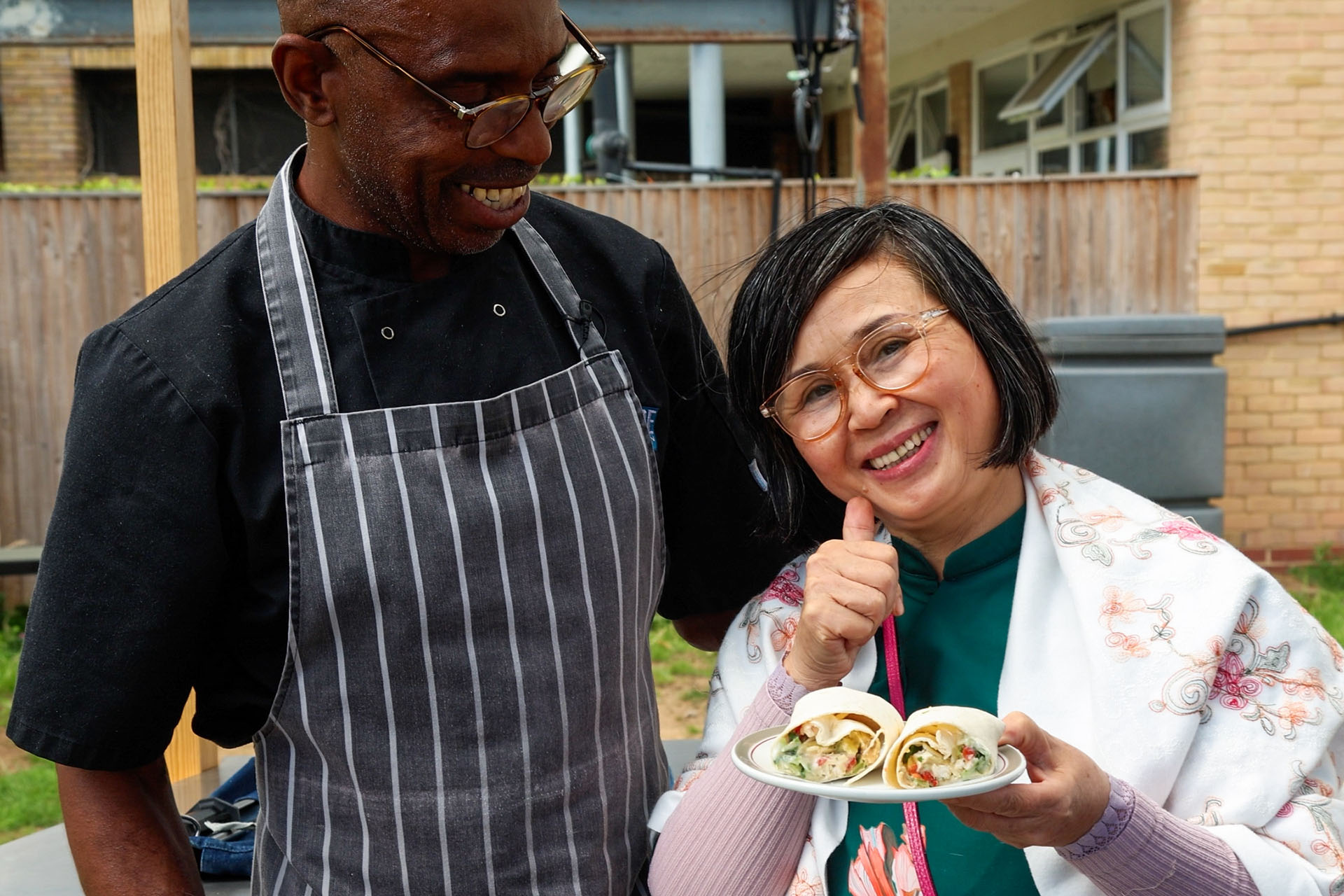
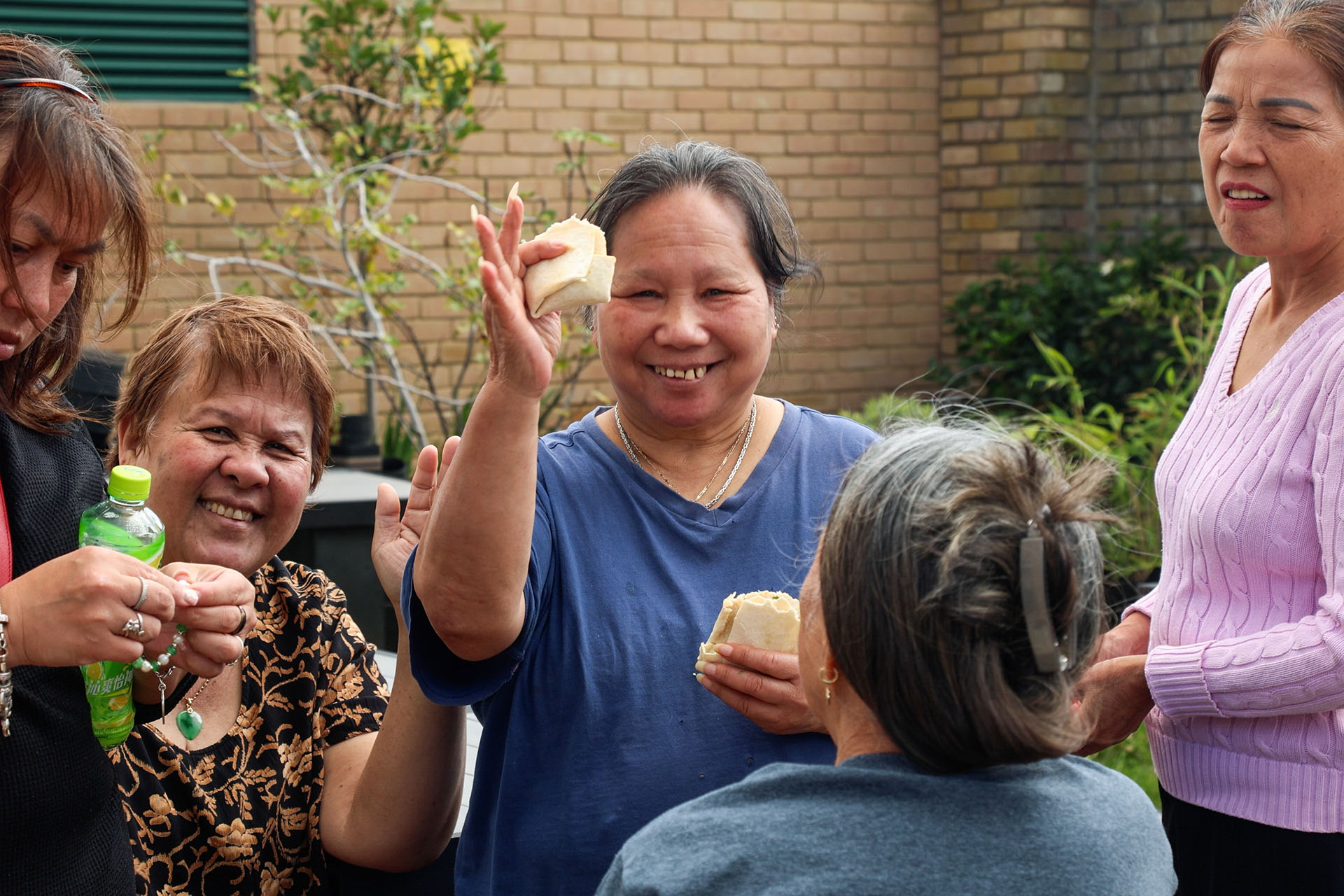
Now we can do even more for the local community. We’ll be able to run more sessions and give people of all generations a chance to share recipes, stories and traditions. That’s the beauty of it. It’s not just about food, it’s about connection.
Jane Downes, Manager of Woolwich Common Community Centre
Step 10:
Give thanks
It’s been a pleasure to support all the students from Central Saint Martins in bringing this project to life.
We’d like to thank Brockwell Community Greenhouses, South London Reclamation Yard, Biffa, Post Card Productions, Buro Happold, Karla Bonner, Flynn Williams, Nikki Hoggarth and our friends at Woolwich Common Community Centre.
We’re always looking for new ways to support our partners in creating a positive impact. If there’s any cause we can help you champion, reach out today and let’s make it happen.